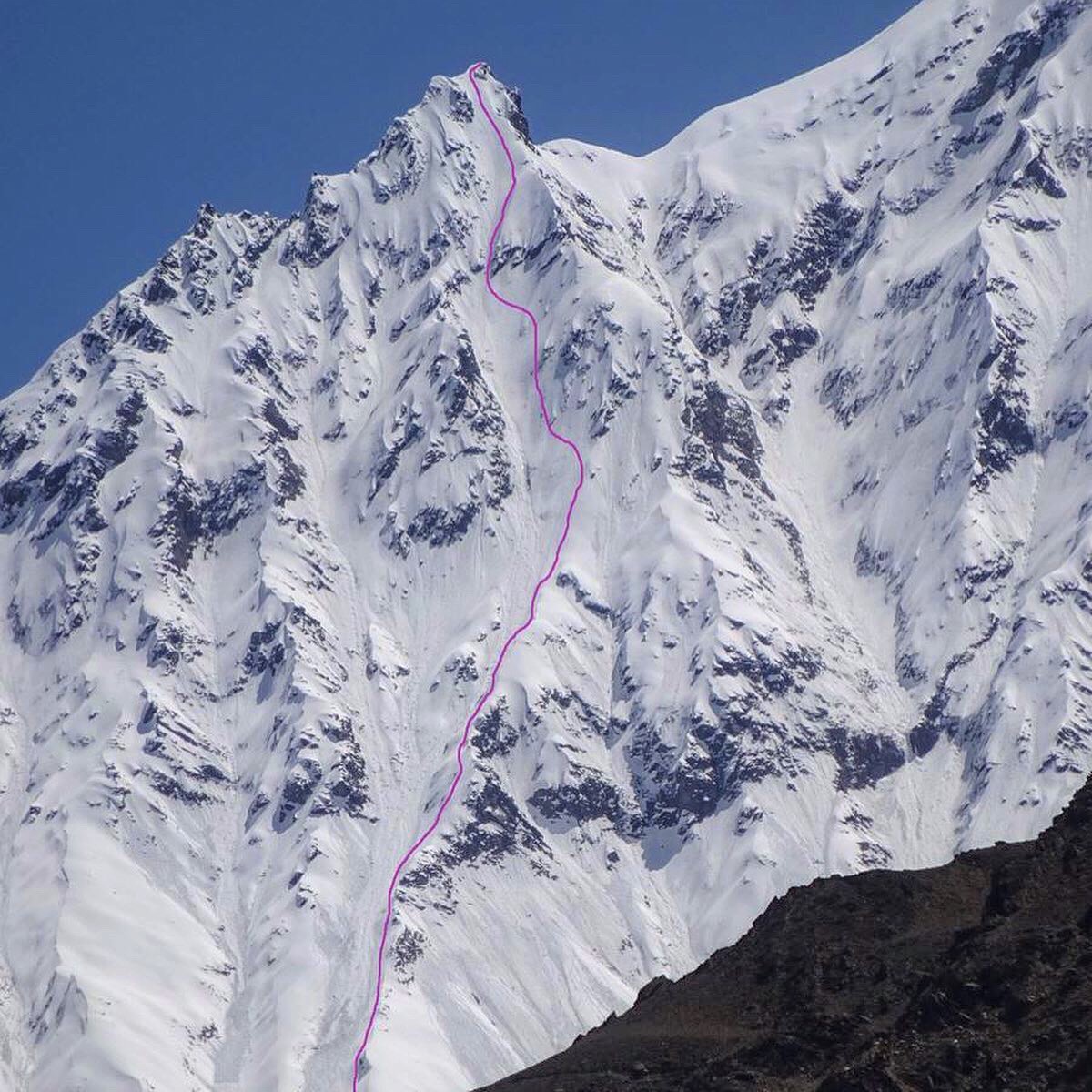
Last year we highlighted our ambassador Julien “Pica” Herry as he and friends pushed full send on massive, earth shaking lines in the Hunza Valley of the Karakoram. That was 2018. A year later in 2019, he went back to tag new lines. This time his universe turned sideways as a pocket slab punched him off a face and into the Karakoram’s troposphere.
Julien was lucky to survive a multi-hundred foot fall in a mountain range that is known for snuffing out human life. His experience, as told through his own writing in which you can “hear” his french accent, tells a tale of not only unbelievable luck, but also words of human companionship and teamwork. And he doesn’t fail to mention the frustrations of dealing with modern insurance companies.
This story is also one of modern medicine. We live in a world where one’s lumbar vertebrae can be literally smashed flat, and a surgeon can go in and “jack it back up” to proper height. Julien is now fully recovered and back to climbing and riding first descents in the French Alps, and we’re honored that he wanted to share this deeply personal tale with us.
In our own experience climbing and riding large terrain, this concept of “clean lines” is one that continues to drive decision making. The theory is that if terrain is “clean”, you can potentially fall down a mountain and survive. What’s fascinating about Julien’s story here, is that although he came out with a serious spinal injury and many broken ribs, the fact remains that he did indeed survive. This truly is testament to the fact that he chose terrain that was relatively clean and free of terminal, large scale cliff bands.
In the world of big mountain snowboarding, there are constant lessons to be learned. We feel incredibly fortunate to have a True Master of snowboard alpinism walking amongst us in our our Global Ambassador team. Julien is a world class professional mountain guide and athlete, and we can all learn a few things from his experiences.
Stay safe, stay COVID-FREE, and we wish you all a brilliant spring! -Russell
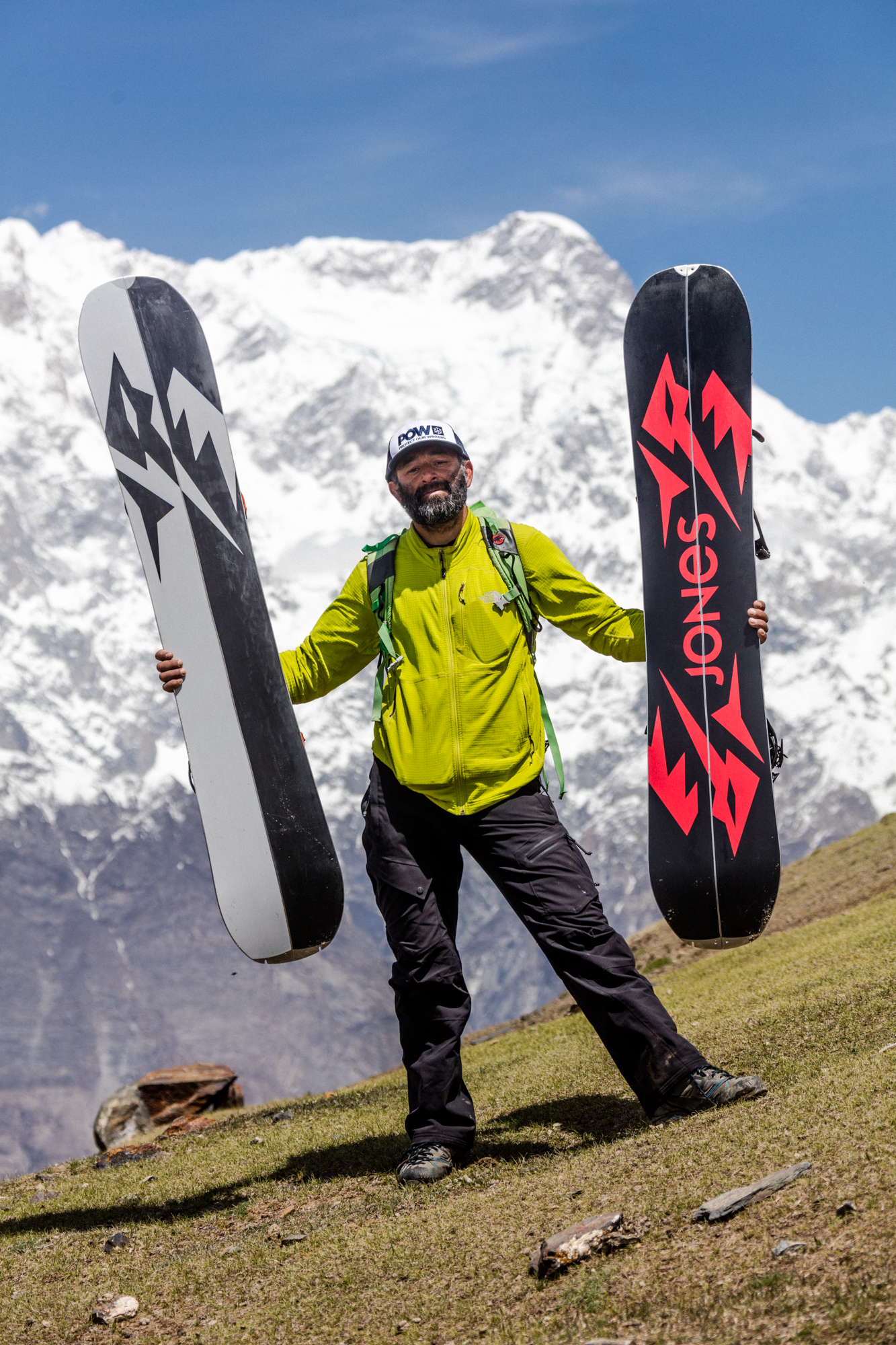
Words by Julien Herry.
Photos courtesy of: Adam Fabrikant, Arthur Ghilini and Laurent Bibollet.
Hamza doesn’t look like a snowboarder, he doesn’t look like a mountaineer either. Studying his frail silhouette arriving at our guest house in Islamabad, I wonder if my proposal to accompany us for a few days in the mountains was not made too hastily. Accompanied by his brother Ali and another friend, he greets us warmly and offers us a beer each and a piece of laughter paste: he doesn’t look too muslim either! A few sips of beer later, we almost forget about the country in which we are and about the bag that didn’t arrive with the rest of the luggage, and we leave the guest house to enjoy good meat skewers with our new friends.
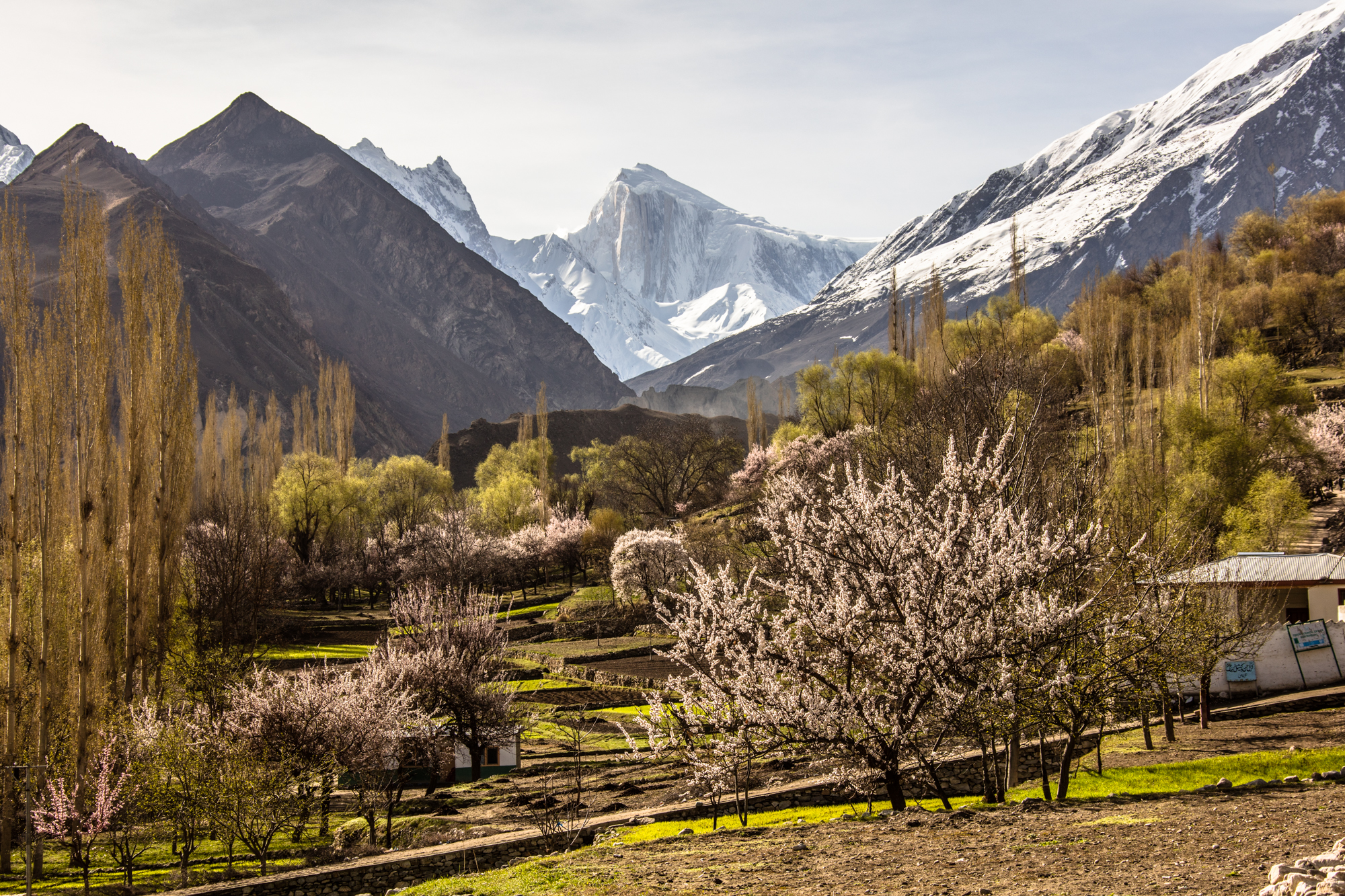
The organization of this trip was complicated, punctuated by abandonments and reshuffles. It is finally accompanied by Laurent Bibollet my friend snowboarder guide from Les Contamines, Arthur Ghilini childhood friend and photographer, and Adam Fabrikant, an American mountain guide eager to discover the Karakoram, that I await the departure of our domestic flight to Gilgit. As very often the flight is canceled due to weather conditions and we must resolve to take the famous Karakoram Highway.
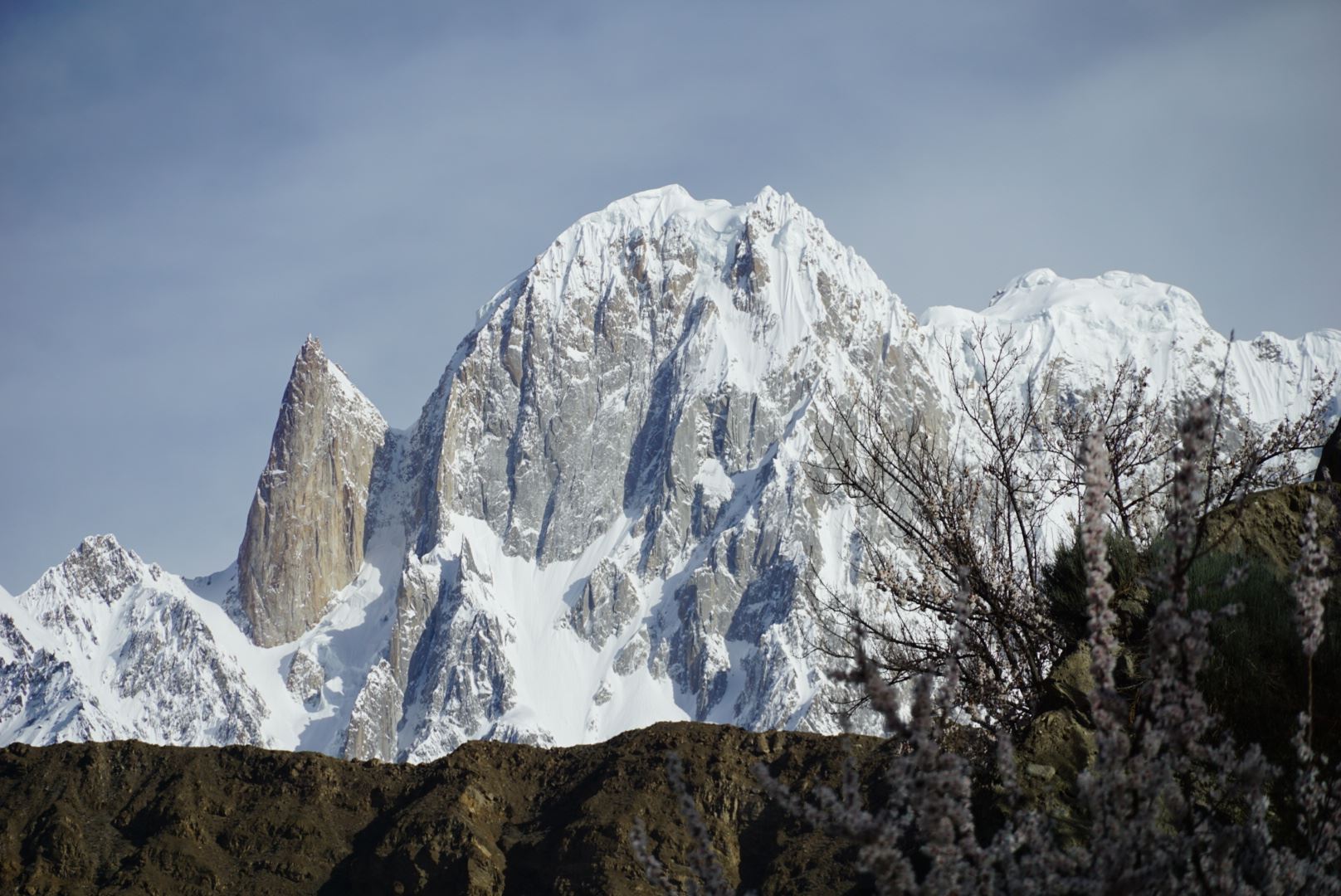
Despite the “almost” official disappearance of the Taliban from the region, it is advised for foreigners to travel with a local guide. We hope that Hamza will look after us! After more than seven months spent in this country spread over 5 different trips, I have my first real discussion with a Pakistani guy who doesn’t live in the mountains. And this discussion is very refreshing, helping me to understand a bit better the city life in Pakistan. Hamza is also passionate about history and tries to give us the keys to understand better the Muslim religion. On an other hand, he is a little less comfortable when, approaching the mountains, we ask him the name of the valleys and summits around! After 2 days on the road we finally reach Karimabad, a small paradise overlooking the Hunzas Valley. Hamza can then pass the torch to Javed, the man of the mountains, our local guide and much more during our stay in the Hunzas valley.
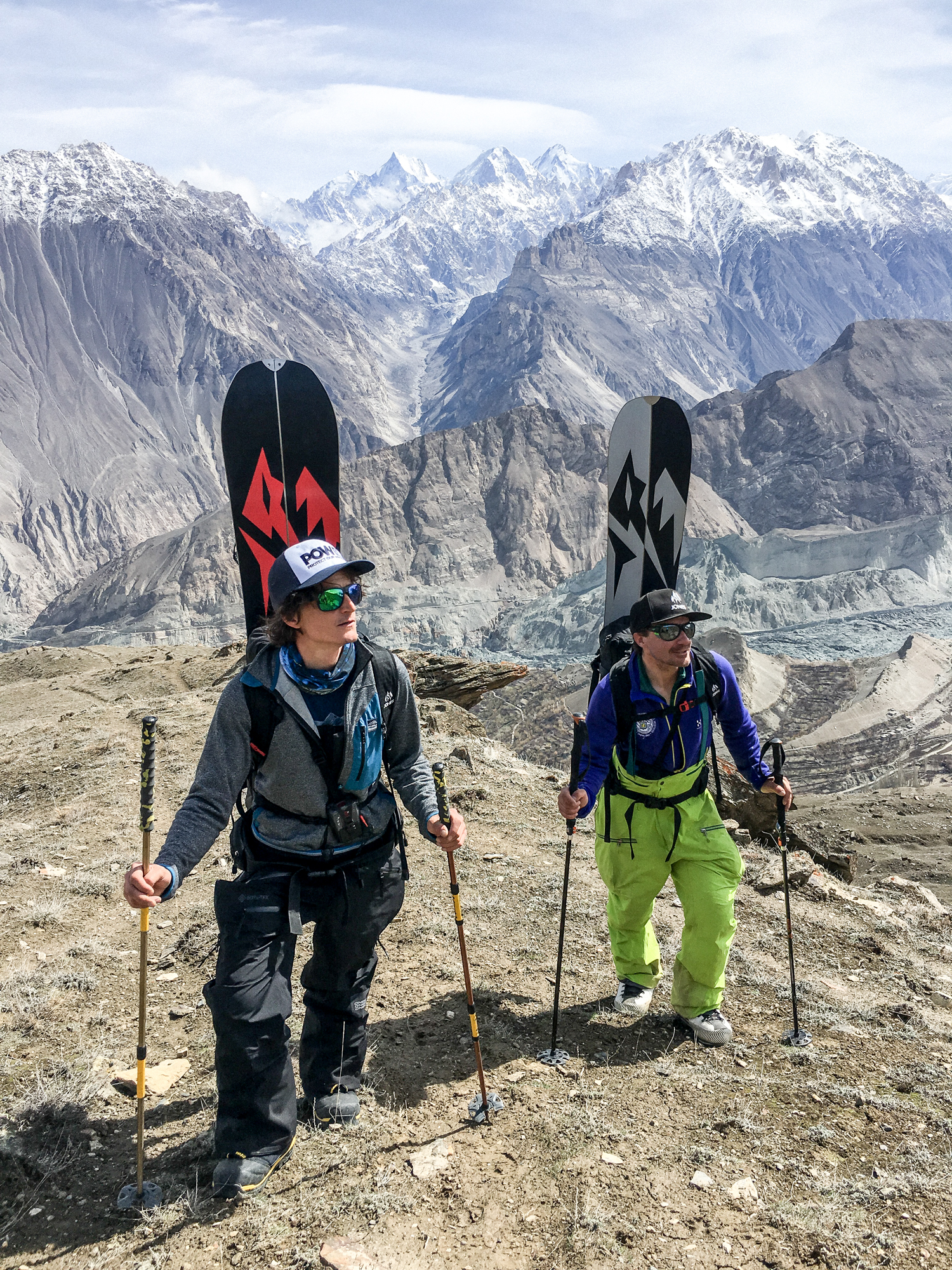
Trying to better plan our outings according to the weather, we decide to go skiing the next day to understand the snow conditions a bit better. The evening is spent organizing our personal equipment. Seeing his new snowboard that we brought him from France, Hamza entrusts me with stars in his eyes that he becomes the 3rd owner of a snowboard in Pakistan … This situation amuses us but also makes us understand the delay taken by this nation in the development of winter sports!
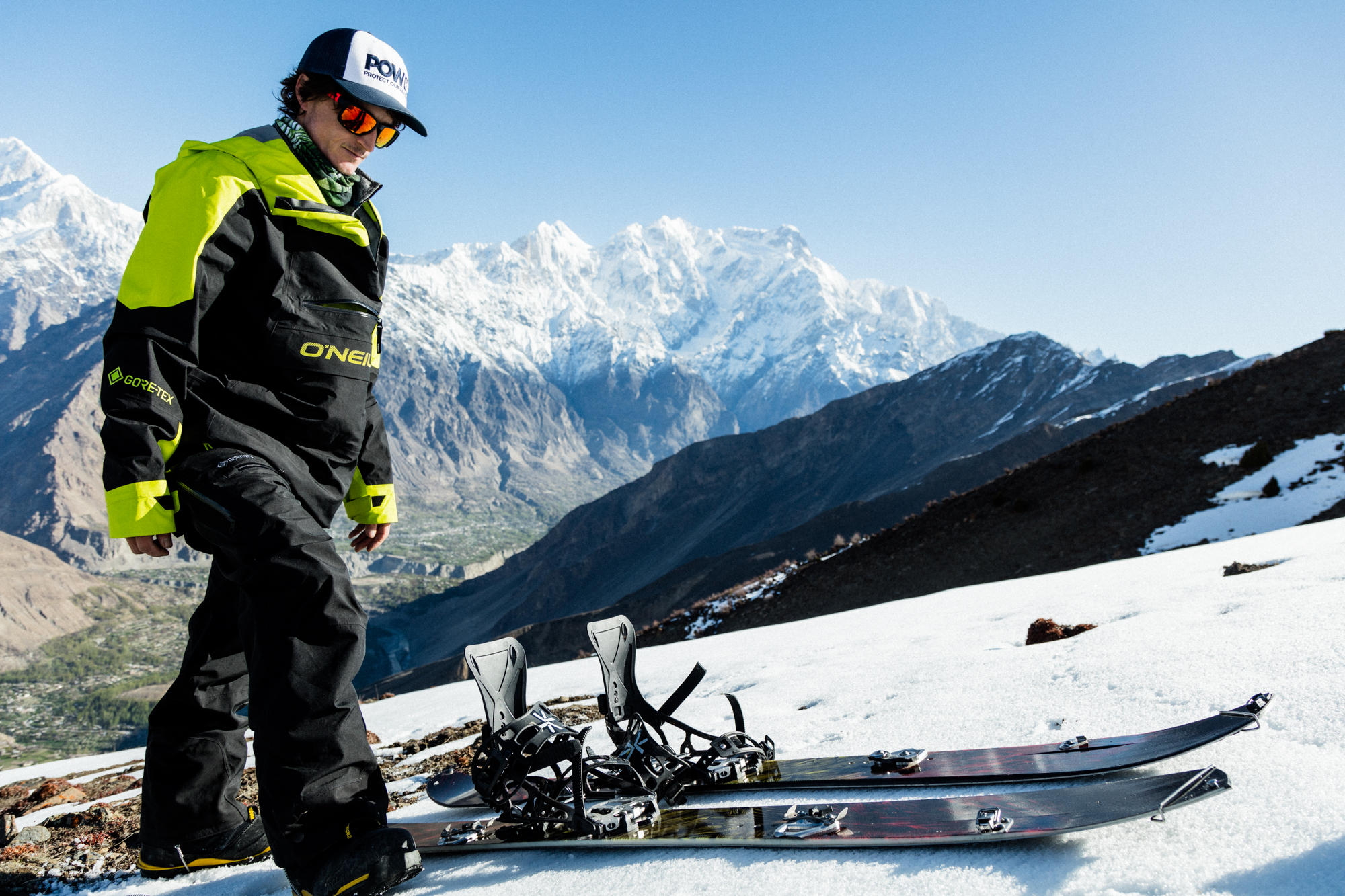
A short night and 2 hours of sleep later we can finally stretch our legs and savor our first turns. Unfortunately the snowpack did not refreeze during the night and despite using skis we regularly sink half a meter in wet snow without consistency. Javed who kindly offered to make a bootpack for Hamza often sinks up to the belly! Getting higher the snow becomes slightly more compact and we manage to reach a pass at 4000 m .. But the already cloudy weather deteriorates, forcing us to descend precipitately .. After a few turns in a nice snow we join our Pakistani friends. .. The conditions are changing radically, the snow is sticking now and getting deep and heavy … We advise somehow Javed and Hamza on the best way to ride in these delicate conditions. Hamza is a little helped by his only gliding tool but Javed also manages to reach the dry land without hurting his knees. Despite the good time spent in the mountains, we are a little frustrated that our 2 friends could not benefit of better snow conditions… We decided to try again the next day on a different spot and despite a clearer weather, the perfect spring ski conditions that I promised to the whole team seem far away …
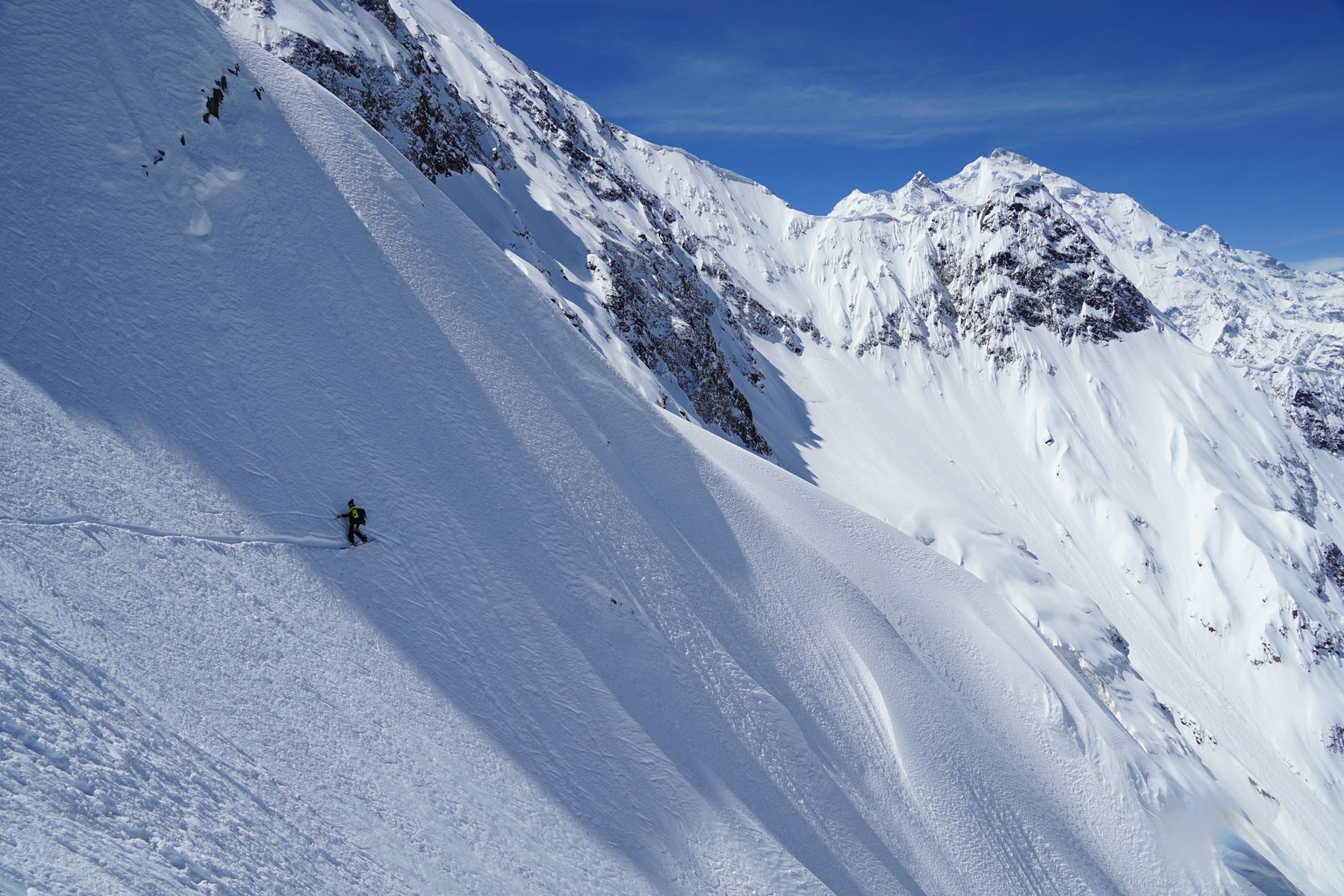
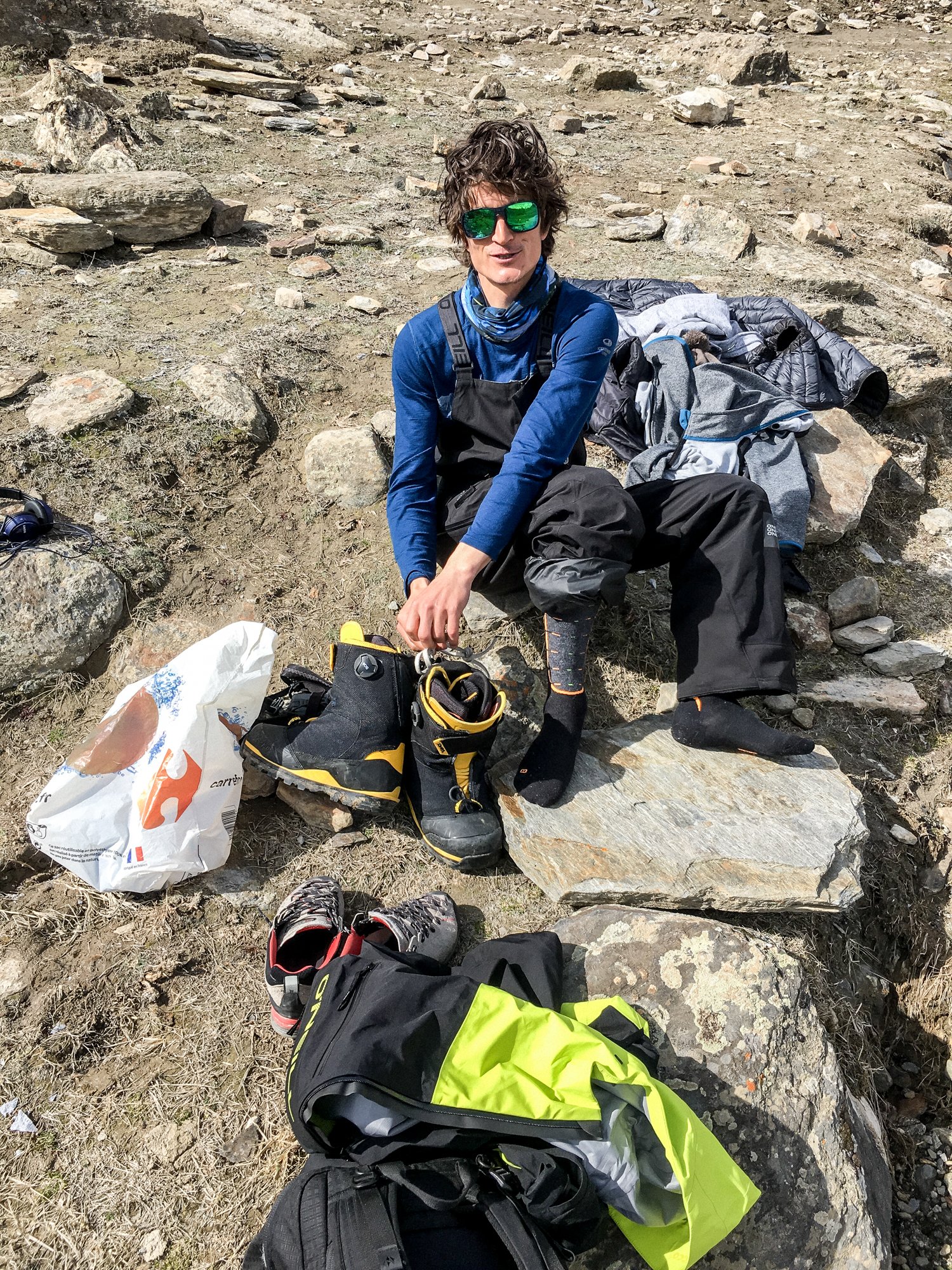
Fortunately a few days later, after a night at the base camp under the Mirshikar mountain, we can enjoy (almost) perfect conditions. A start at sunrise and firm snow allowing easy progression, slowly but surely Javed and Hamza join the pass of the first day at 4000m. We can finally enjoy some fun riding all together, and read the happiness on the faces of our local friends, reminding us that giving can feel as rewarding as taking! Unfortunately all good things have an end and Hamza already has to leave us to return to work in the capital. It is with a little sadness that we watch his jeep driving down to the valley in the middle of a myriad of apricot trees in blossom!
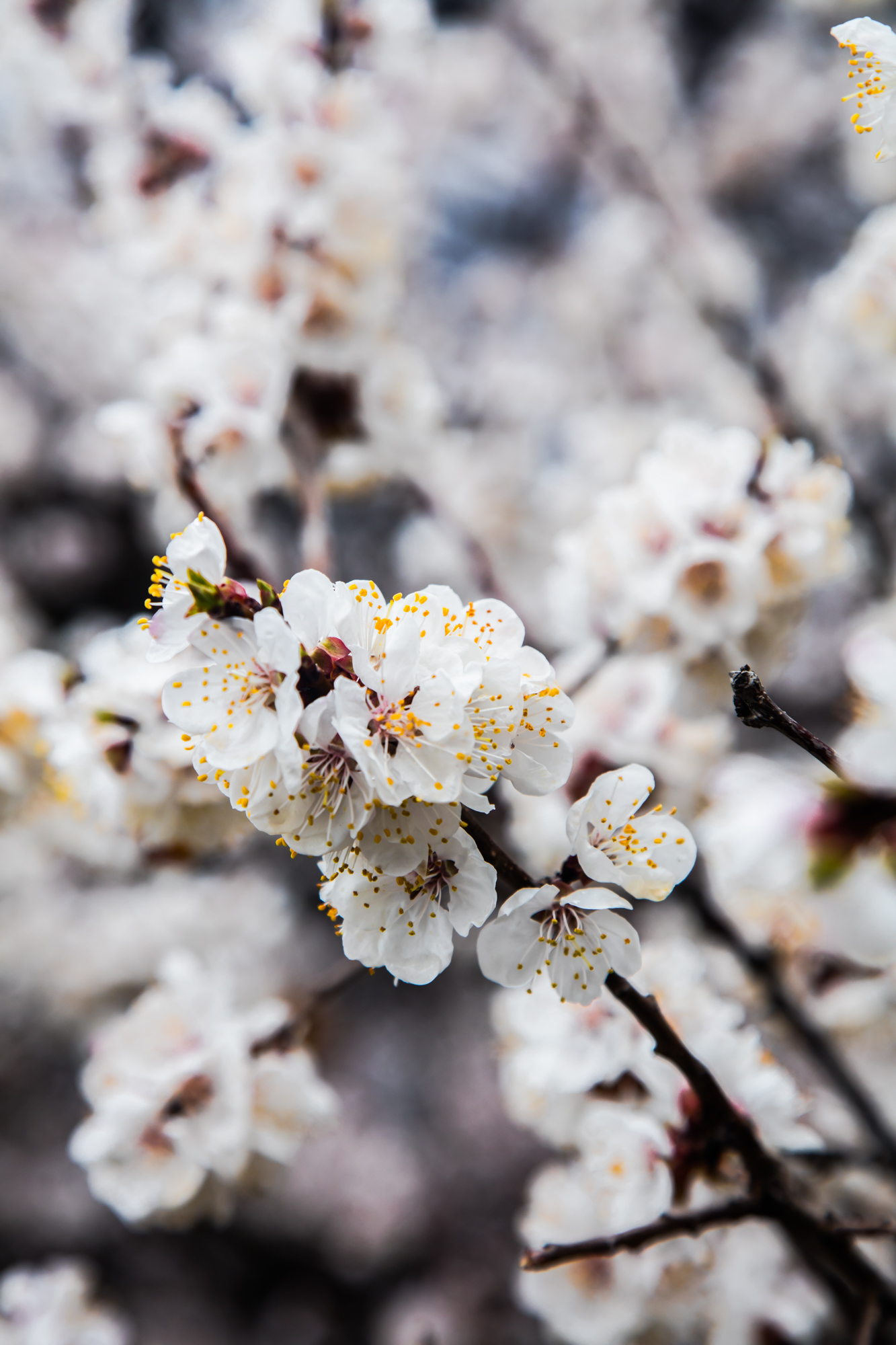
This winter has been historically snowy and cold in the Hunzas Valley. We were aware of that, regularly checking the Pakistani weather forecast from France. Our friends in Chamonix were jealous to see us leave for a snowy place but I was mainly worried about the difficulty of access to the spots because of blocked and damaged roads from avalanches. Finally the limit of the snow is not much lower than what I saw in the past but the avalanche corridors are well filled and many slab crowns are still visible under the thin layer of fresh snow. During our second day skiing, above the village of Hopper, we are surprised by the lack of refreezing after a fairly clear night. The snow is so wet that the many whomping sounds from the beginning of the hike make us smile. A few hundred meters higher the snow finally becomes more consistent and inspires us a little more confidence despite many vestiges of slabs from past days/weeks.
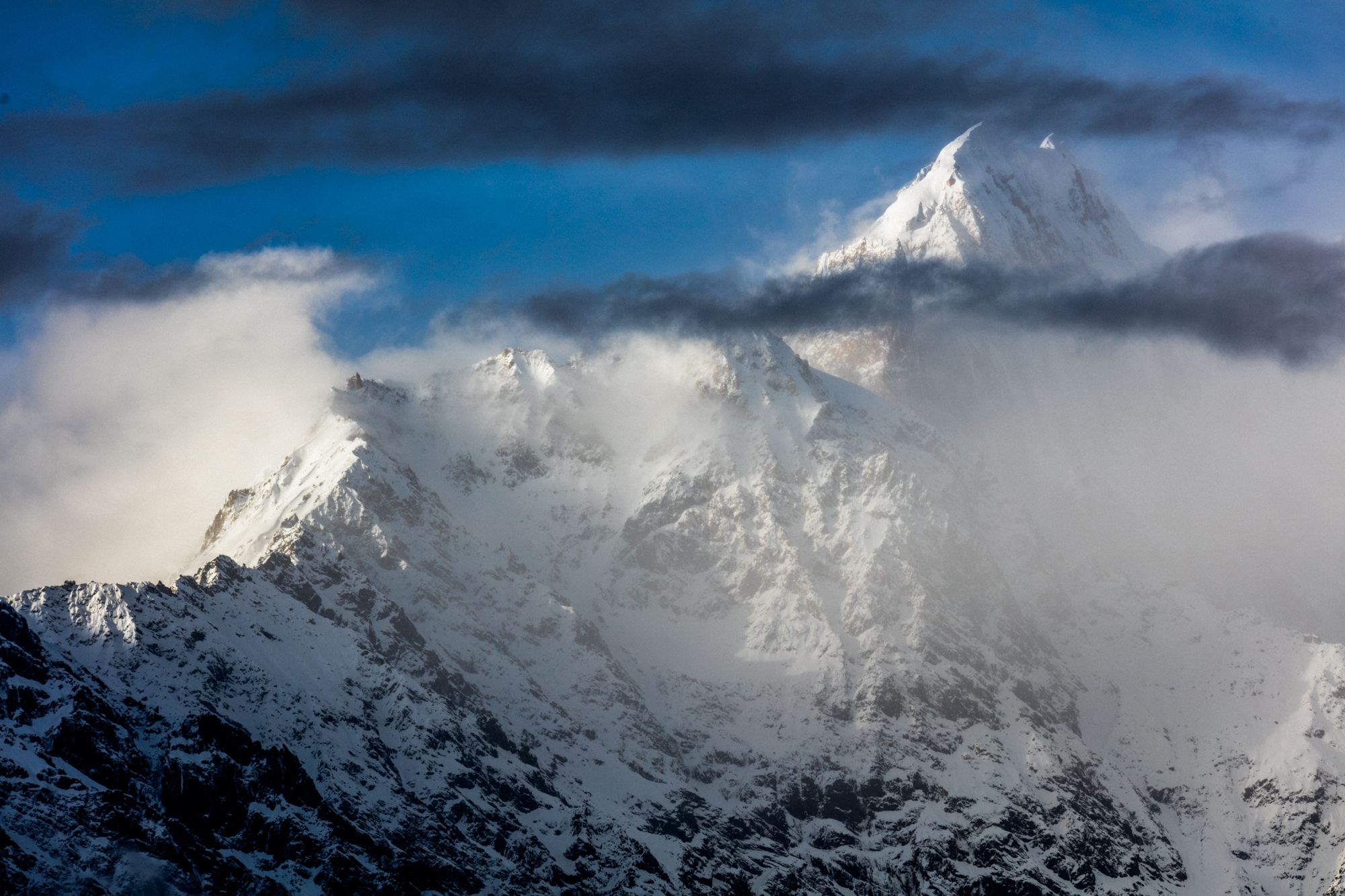
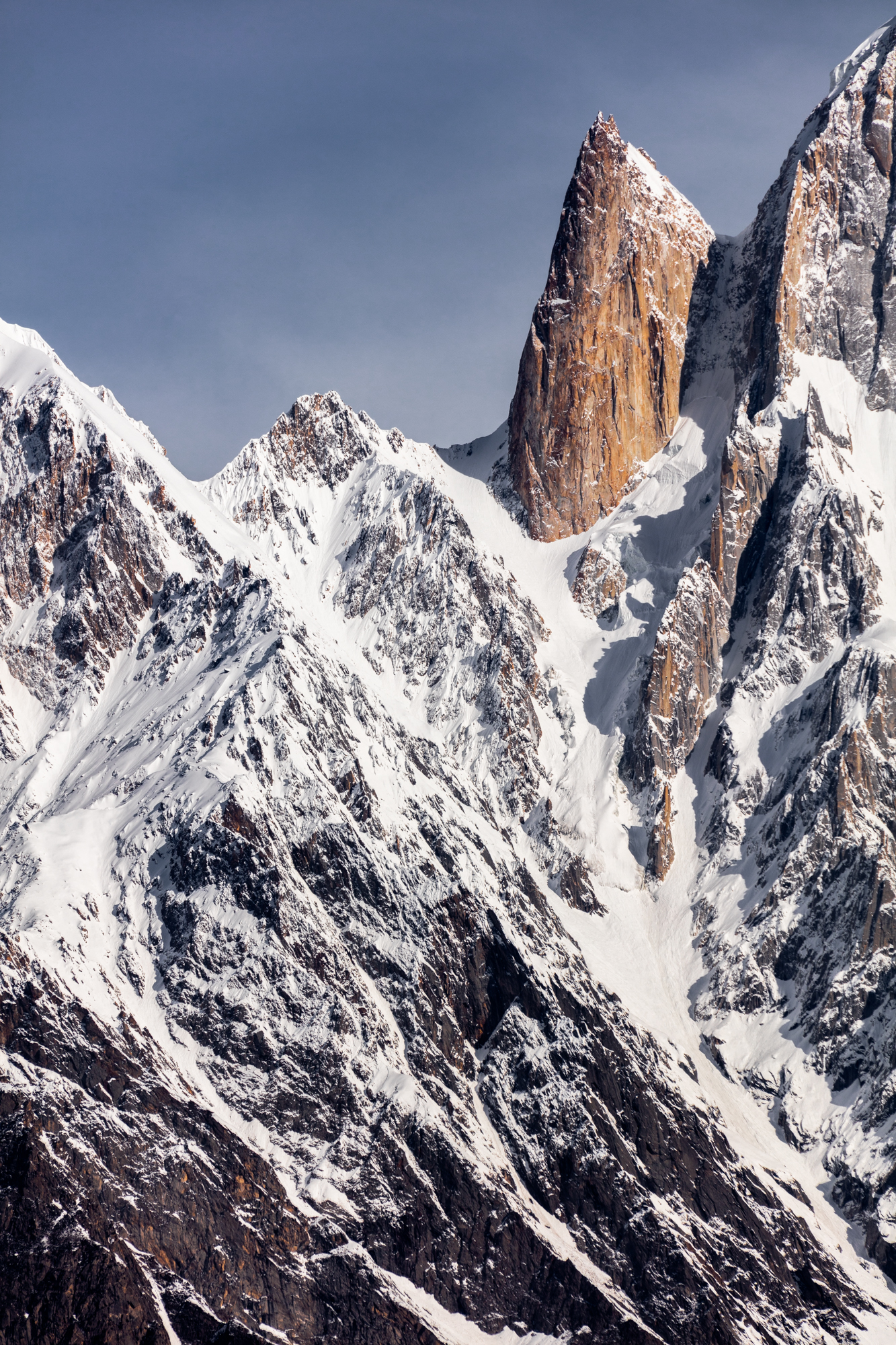
Having already climbed twice in the same place in the past, I know that the last 50 meters under the summit are exposed on its left side but that this slope can be bypassed by the right as well. The nature of the terrain naturally pushes us to leave more distance between ourselves even if the snowpack doesn’t worry us too much. The wet snow becomes powdery, giving us hope for an incredible descent on the other side.
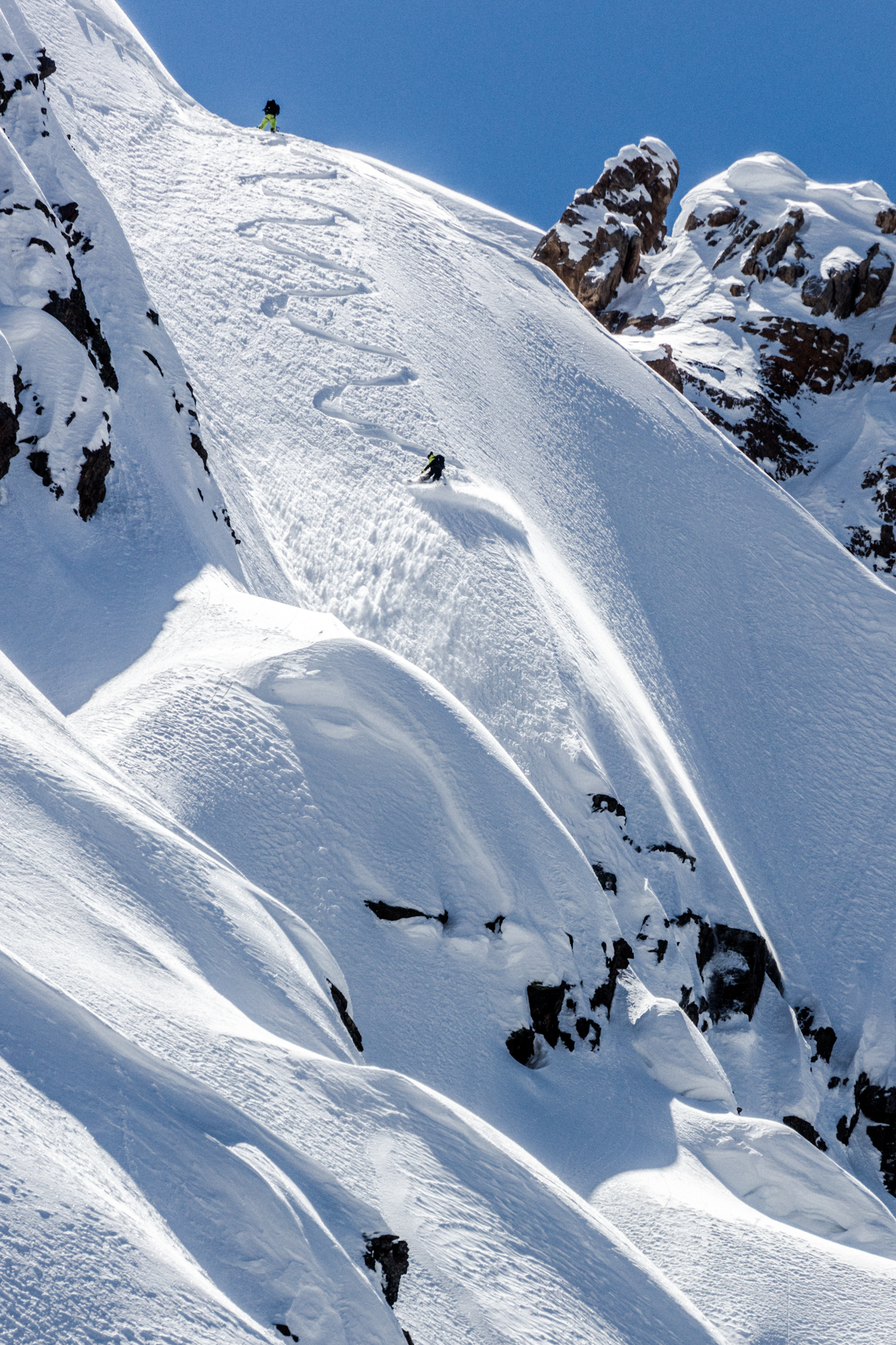
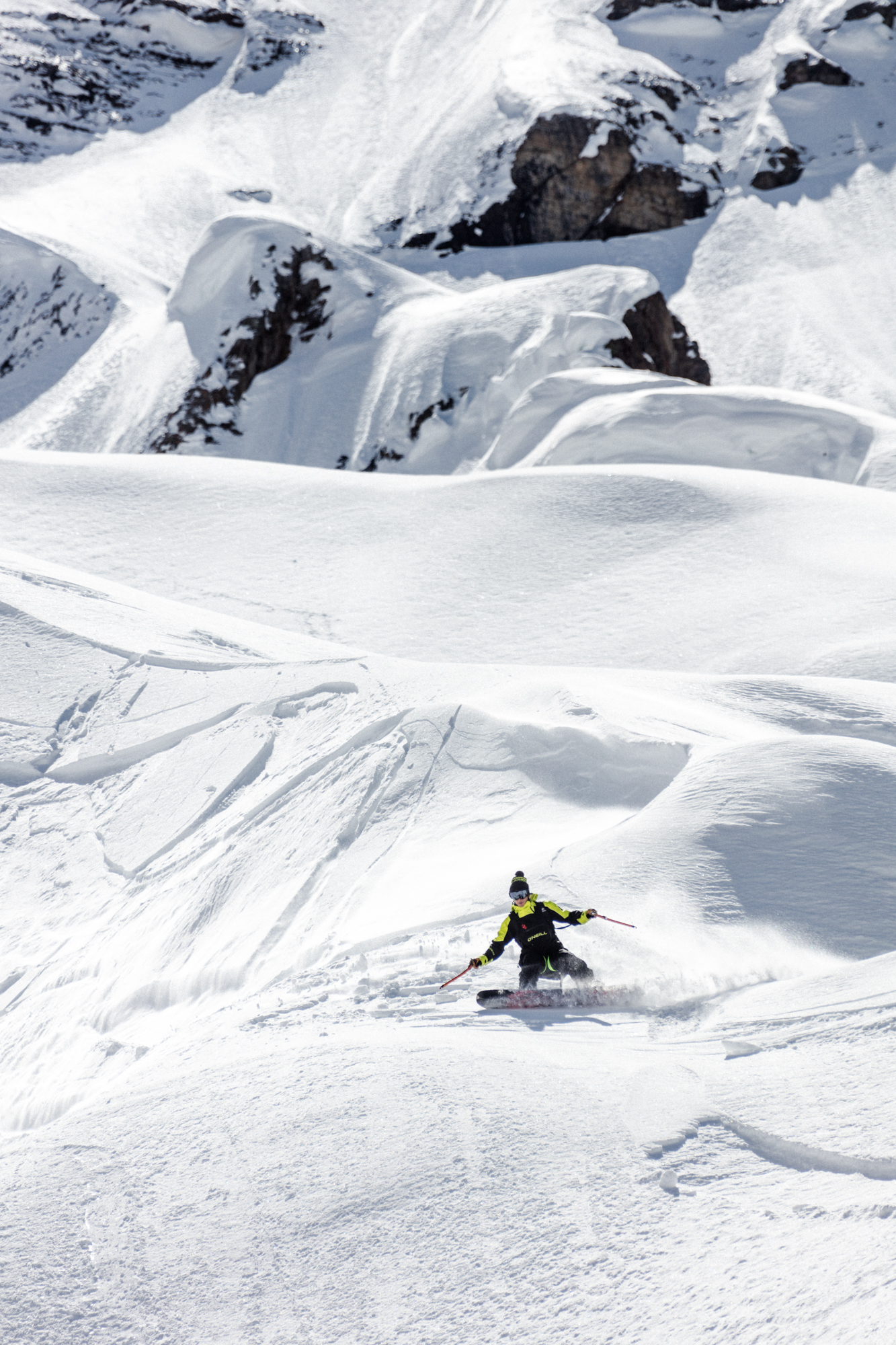
Suddenly Arthur who is the last of the group feels the snow collapsing around him, an unpleasant whomping noise. Being ahead and negotiating a short steeper passage, I decide to continue a few meters towards a flatter area to delay and discuss our situation. A strange noise followed by a cry from Arthur make me look up: the face above us is disintegrating by propagation!
Instinctively I jump down the slope in splitboard tour mode and choose the direction that should take me away from danger. Everything happens quickly and I see myself almost out of danger when I get stuck on a flat, I have forgotten I have skins under the skis. Despite my efforts to move quickly away, I see the wave of snow come on me and hit me under the knees! Fortunately it is not too fast and I find myself skiing the right flank of the avalanche without being able escape. A few seconds later as my skis start to dangerously move away from each other, the whole mass of snow stops … I need a few seconds to find my breath and my mind, I’m alone! I assume that Laurent and Arthur were able to avoid being in the avalanche as they were a bit lower on the left side and I already heard Adam call me once, he must be coming down to me. Hearing his second call I turn around and see his silhouette half buried in the snow, his head in the open air. Arthur and Laurent join me quickly on skis and help me get Adam out of his uncomfortable position.
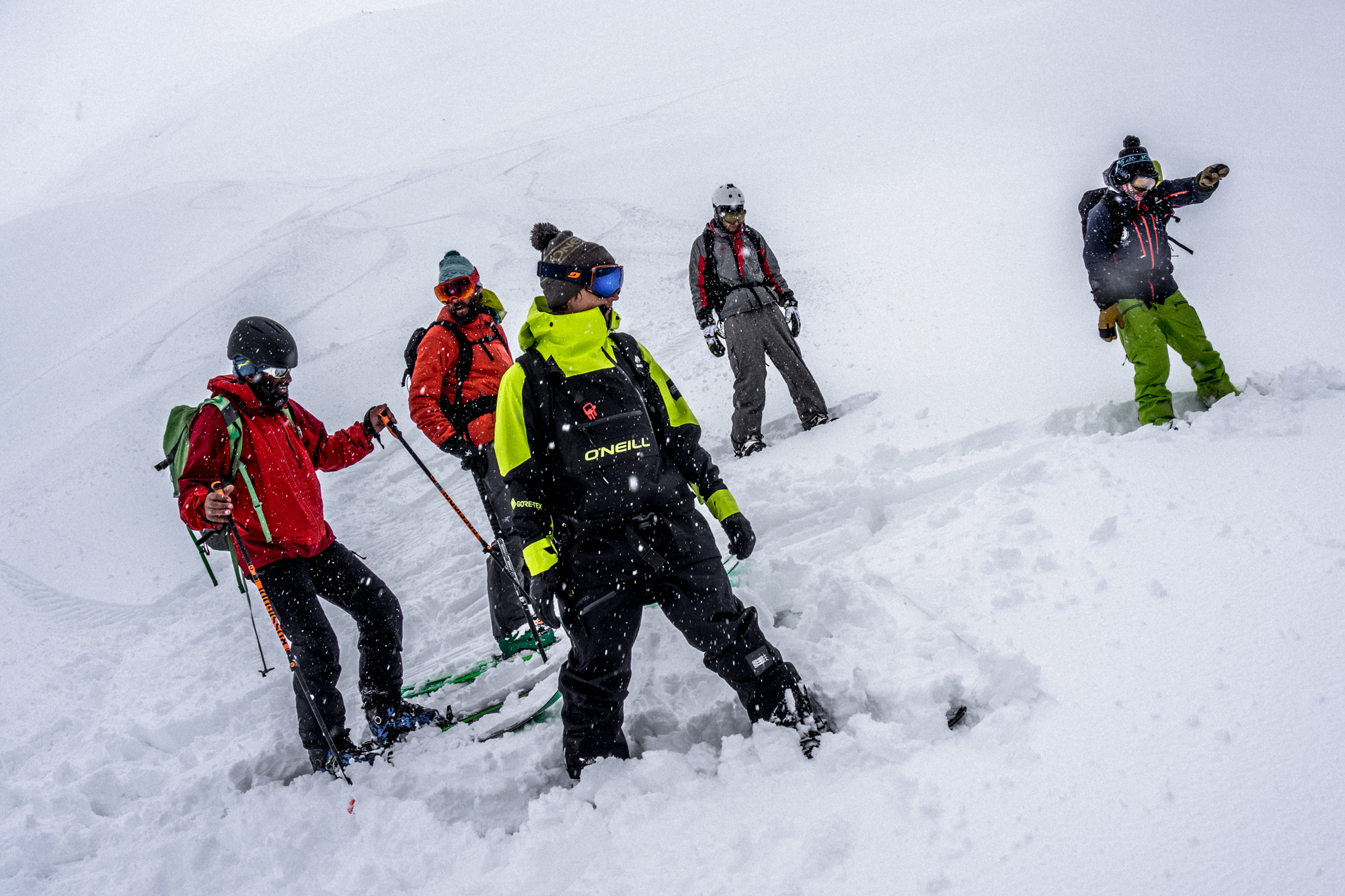
The rest of the descent is done carefully and we are happy to find dry land under our feet! Despite the happiness of everybody being all right, we are frustrated we did this mistake, frustrated to understand that the conditions are delicate and that our hopes for longer and steeper descents might fly away. It seems that there are one or more very fragile layers on the North aspect and the snow does not seem to be settled enough on the South aspect to offer nice spring skiing. After thinking of putting away the boards in a first time, we want to at least try to better understand the snowpack on orientations that are more affected by the sun.
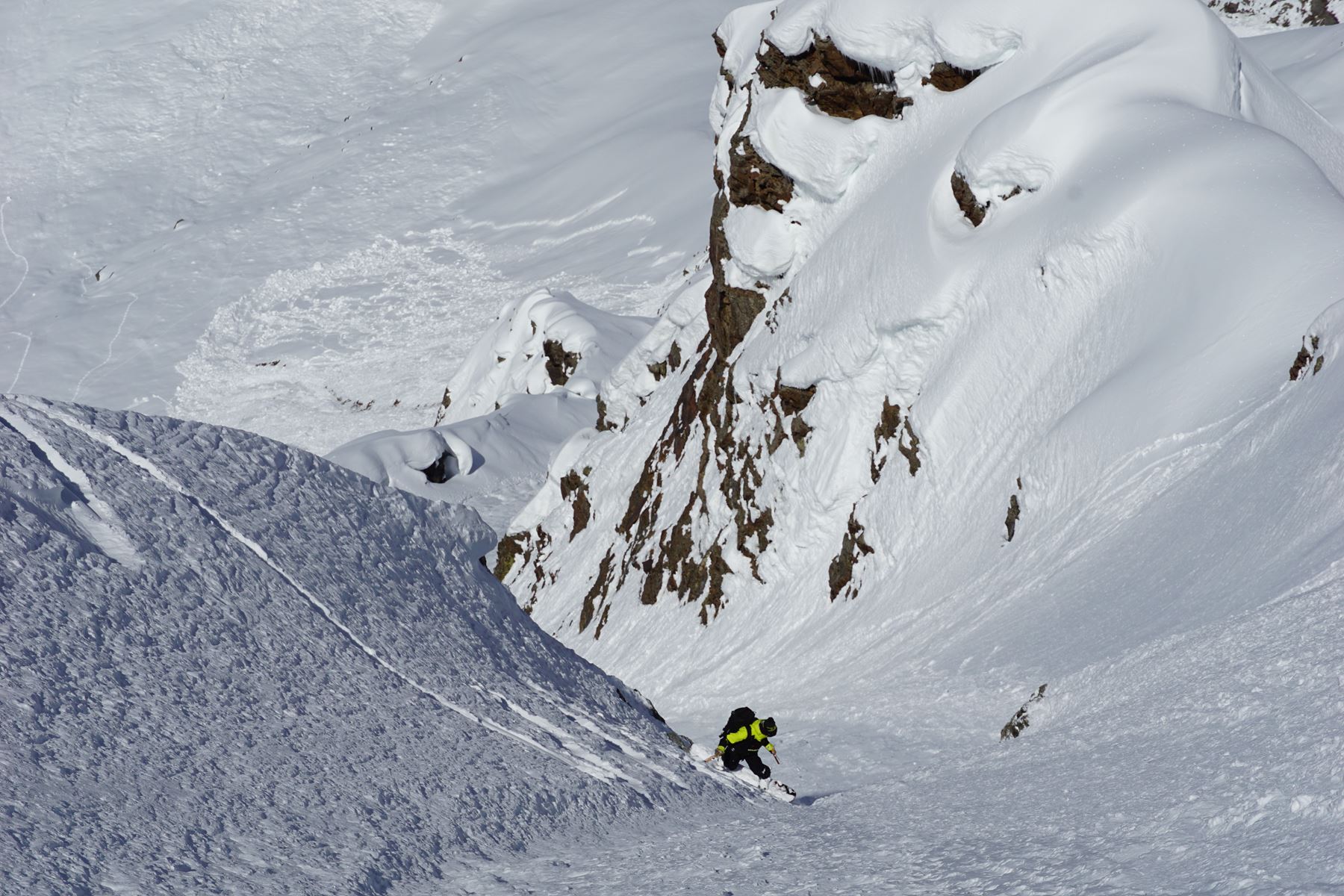
A window of 3 days of good weather is announced and after reflection we decide to return under the Mirshikar to set up a base camp, with Ali to cook us good meals! We have revised our objectives downwards and want to start “crescendo”! Without a definite objective this first morning we finish towards 4200m on the North ridge of Mirshikar with Laurent and Adam, at the top of a beautiful short slope of 200m facing East. Despite an apprehension more marked than usual before starting the descent, it feels good to let go of the machine and finally enjoy some real turns.
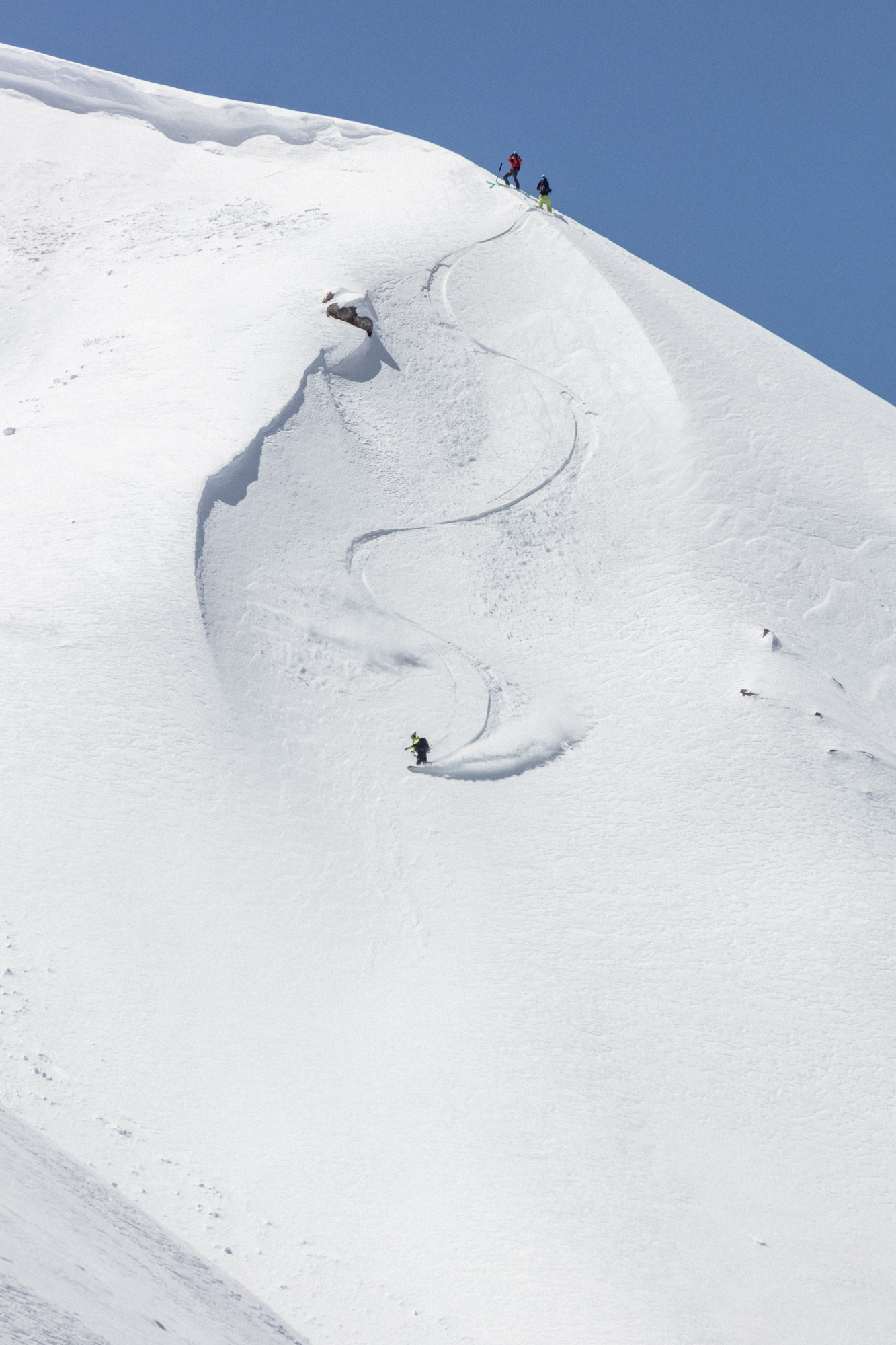
The next day at 3am and under the full moon we leave base camp to go visit the west side of this same ridge. After an hour of walking on goat trails we finally ridge the snow. It is so hard that we have to put on the crampons and leave the skins in the backpack. On daybreak, we get to the bottom of the couloir and the snow is still hard, iced by regular avalanches on this west facing slope. However the north slopes on the right hand side reveal a cold and soft snow, our bet seems to be gained: to climb without danger of avalanche on a hard snow and to ride down in cold powdery snow.
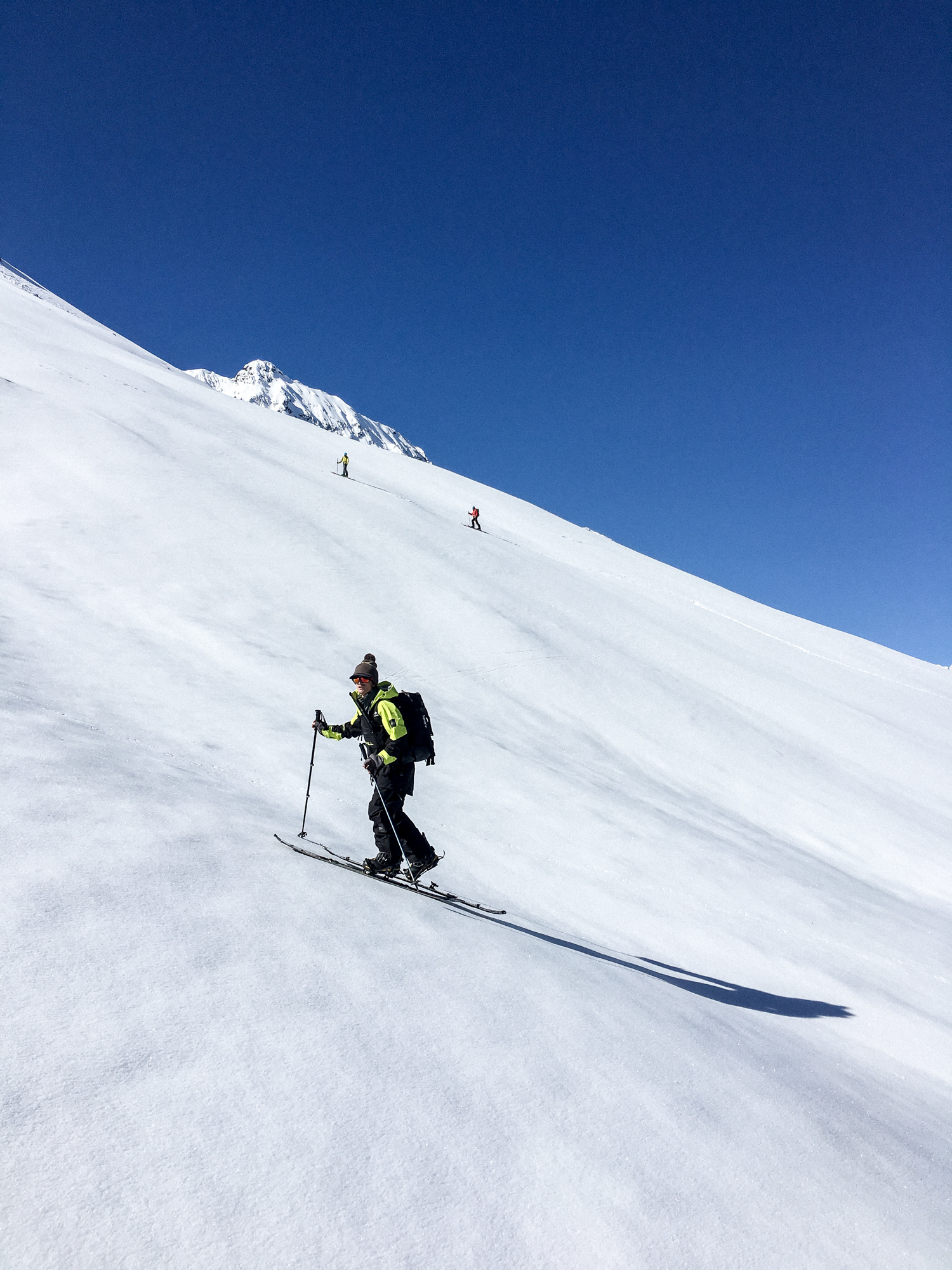
The climb goes quickly with these conditions and we find the sun when arriving on this virgin summit at 4800m. The view is splendid and we savor it a moment while waiting for the sun rays to come illuminate the slopes that we are going to ride. The first 100 meters are delicate, steep with a crust on the surface, then comes a short but beautiful spine. Arthur is shooting in the distance and immortalizes this moment. Skiing is steep and technical in the north slopes. The snow is stable and sluffs a bit under our turns, however it becomes icy when you change orientation, demanding a maximum of attention! Then the sun takes effect and we enjoy great corn snow on the lower part! Back to the CB at noon with a big smile on our faces, we feel now to go on a little more ambitious objective. Naturally our choice goes towards a beautiful spur / ridge coming out just below 5000m, that we could observe all day long. Despite a bit of fatigue we prefer to take advantage of a stable weather the following day and set the alarm at 1am.
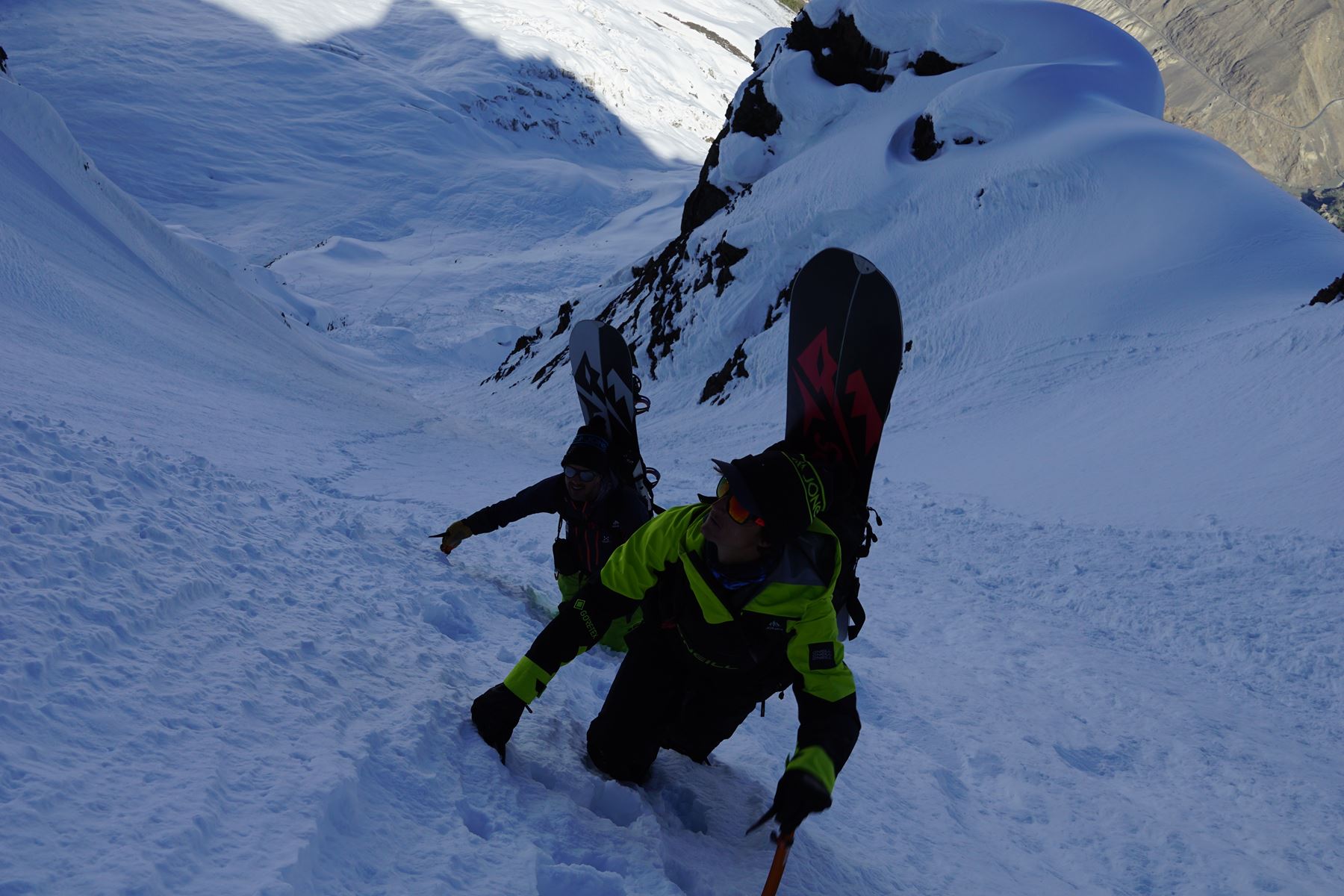
We start our approach in full moonlight, and by sunrise we are climbing the spur. The snow is hard as expected on the right flank of the ridge and we quickly reach the point where I had to turn back the previous year with Sam Favret and Leo Slemett. The snow is now cold and powdery in this last short slope leading to the edge of the ridge. Adam passes in front of Laurent and I, a slight surface crust appears as the snow gets slowly a bit deeper.
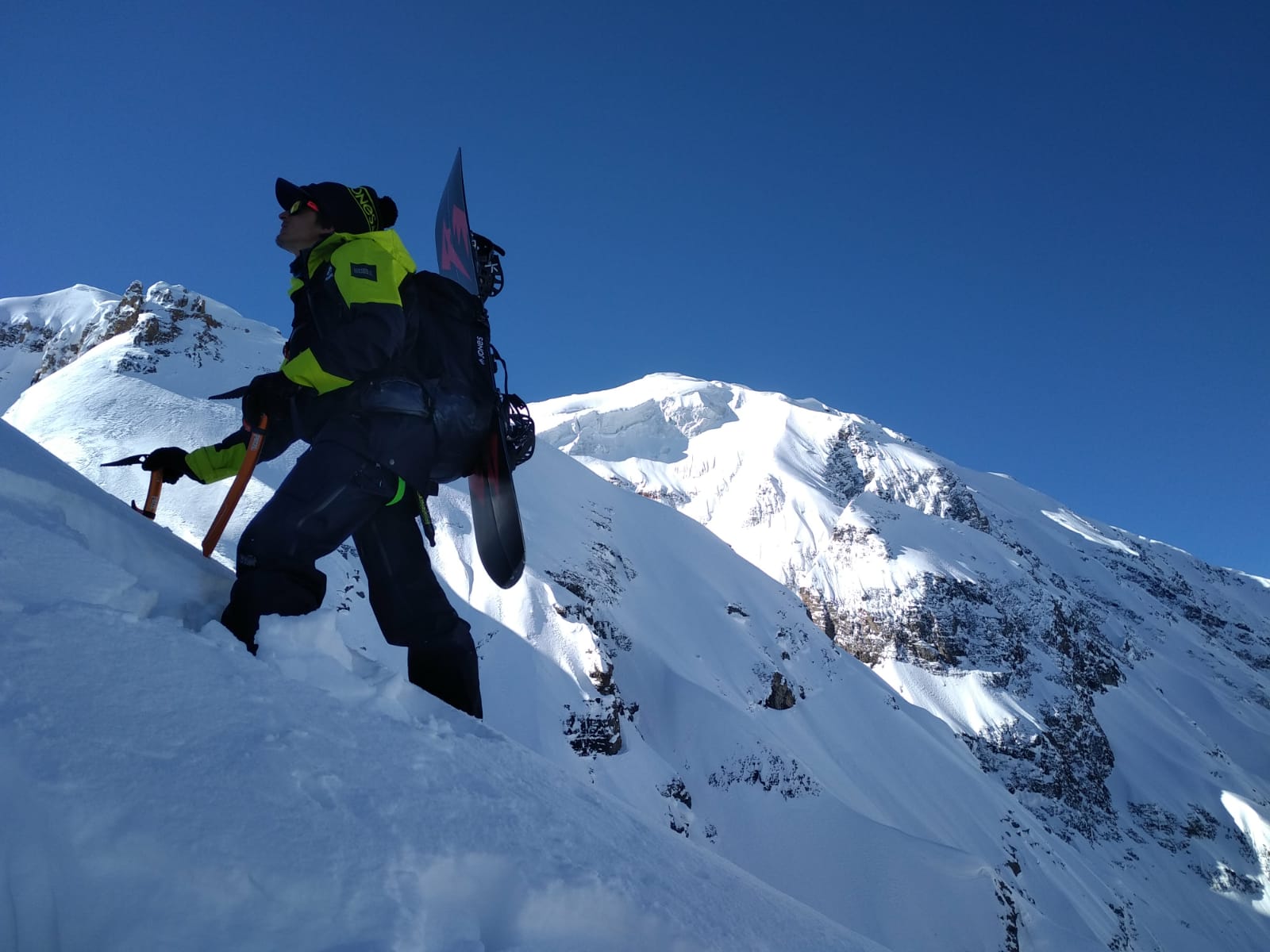
Suddenly, the slope cracks a few meters above me, only 30m wide and 30cm thick but I’m lucid and immediately understand the fall that awaits me.
I begin falling. A short glide projects me into a series of tumbles punctuated by short moments of weightlessness and violent shocks of impact. After several shocks, I slowly loose the energy to fight and wait until everything finally stops! I open my eyes as I come out of a bad dream, I’m still here, alive!
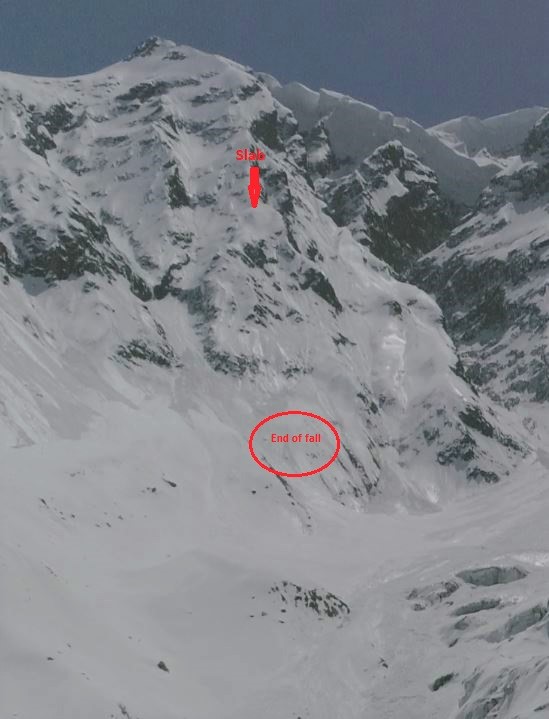
By reflex I put back a crampon that twisted under my foot and then soon see Laurent walking down 100m above me, he also fell down but he apparently followed a less long and painful path. Then Adam joins us on his skis, he did not lose balance as the slab broke at his level. He helps me to walk to a flatter place, I complain about my back and ribs … Then quickly nothing, I can’t remember anything about the 2 following hours! Laurent asks for medical advice from France, it seems better to reach the base camp on our own if possible. Apparently I’m starting to talk non sense and my 2 colleagues must help me walk down a long, steep snow slope. Javed and Arthur then join us quickly and I find my mind back arriving a little above base camp, now supported by Javed.
The following week is punctuated by pains in my body and administrative procedures for repatriation. It is also marked by the kindness and dedication of our Pakistani friends, including Hamza and Javed! Spending for the first time over 24 hours in Islamabad, the various meetings made there make me realize the growing craze of some local youth for winter sports in Pakistan: the playground is there, they are just missing a few infrastructures to enjoy a bit more.
Many thanks to Shamyl, Musa, Javed, Hamza, my family and my fellow adventurers for their invaluable help during the rescue and repatriation!
Slowly recovering my mind at the basecamp laying on a mattress, I understand that a jeep will arrive soon to bring me to Gilgit hospital. A few hours ago, just after the accident, Laurent called our travel insurance which couldn’t help with a potential helicopter rescue. He then called Shamyl, a Pakistani friend living in Paris who organized most of the rescues in the Karakoram during the past years. Shamyl told him that the army helicopters were busy working on an other avalanche that just happened by the Chinese boarder so they could not not ridge us until 4/5 pm… Even if I can’t remember anything about it, I was lucky enough to be able to walk down straight away with the help of my friends Laurent, Adam, Arthur and Javed.
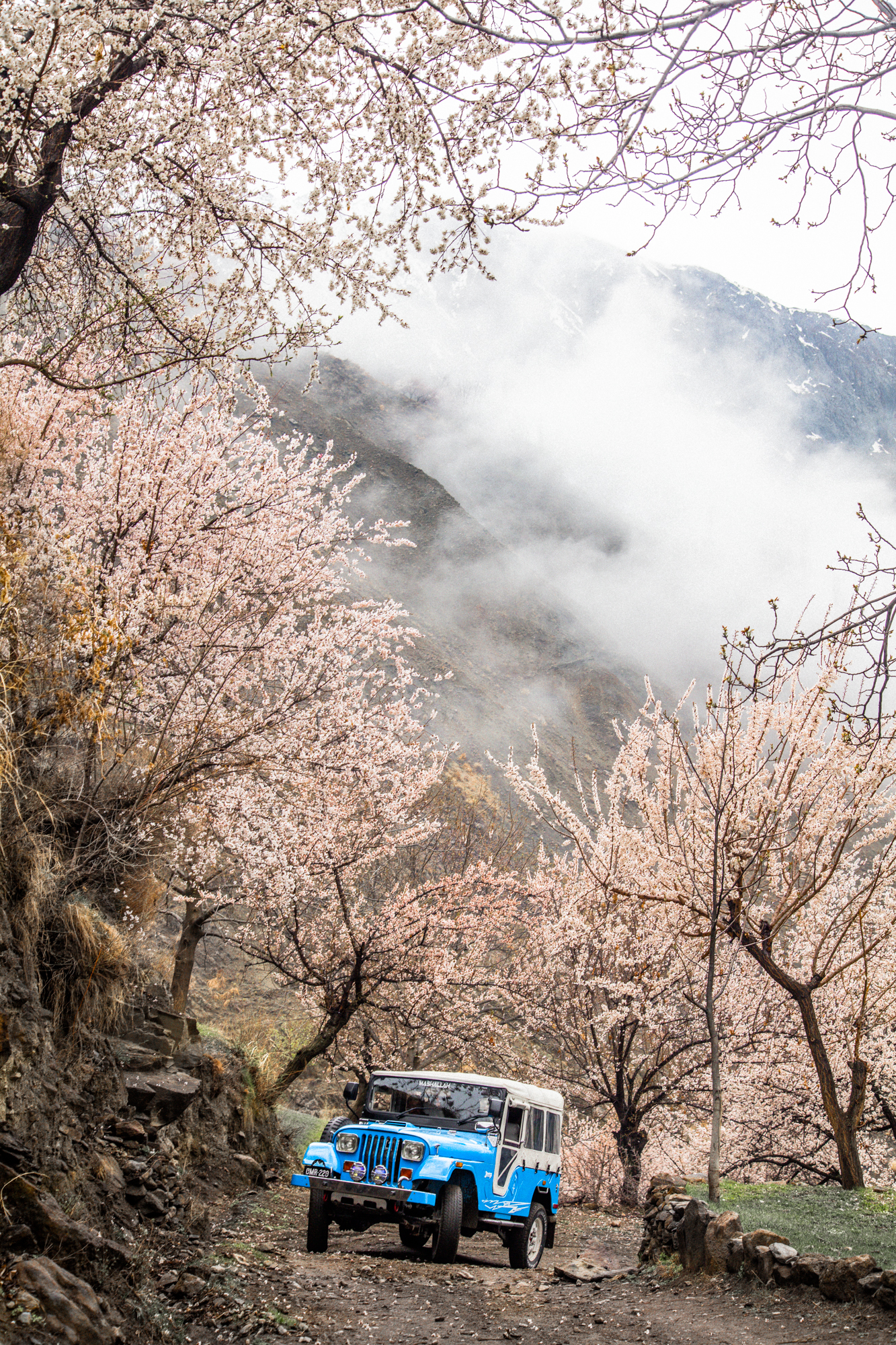
I can hear an engine noise and quickly after our friend Musa arrives with his jeep. With a bit of trouble, I manage to seat on the back bench and slowly understand how painful the drive might be. Feeling a bit dreamy still after the fall, and probably with the help of medicine as well, the first 2 hours on a dirty bumpy road don’t feel too bad but still we are happy to arrive on the Karakoram Highway and its smooth road, at least in the Hunza valley. Two hours later we reach Gilgit and finally manage to find a hospital opened on a Sunday afternoon.
After a belly palpation and a ribs X ray, doctors tell me I am ok. Still we go to a different place to get a scapula scan which again doesn’t show anything broken. Feeling lucky, we drive back to Karimabad village, our base camp for the trip, hoping to recover quickly and be able to spend a few more days in the mountains.
Evening and night go pretty well but, in the morning, I really can’t leave the bed by myself. After warming up I feel better and I can walk slowly in the steep main Street. The plan is to take a few days to rest properly and then decide if we should stay or not. Ali our cook and longtime friend offers me lunch at his place in Aliabad, a few kilometers away. Without thinking too much I get on his motorbike behind him for a 10 min drive between cars and holes, feeling confident after the doctor’s verdict yesterday. Talking for the first time with Ali’s shy 15 year old daughter, 12 years after I met her, is probably the most touching moment of the trip. Back in Karimabad via motorbike in the afternoon, I have a first look at my back in a mirror and realize how big the bruise already is. I know that my only chance to avoid a drive back on KKH would be to fly back to Islamabad the next day, before bad weather comes back for a few days forbidding the plane to take off, but I still have hopes to recover in coming days.
Following night is worse and in the morning, I can hardly move anymore without a strong pain. I quickly understand that the only reasonable decision is to go back home to get a proper body check-up.
Unfortunately, it is too late to catch a flight from Gilgit but still we want to drive as much as possible before the rain. After trying to get a proper ambulance in a first time, we finally opt for a classic minivan more easily findable. Leaving without having time to say a proper goodbye to my Pakistani friends makes me sad, but at least Javed our nurse is coming with the rest of the team.
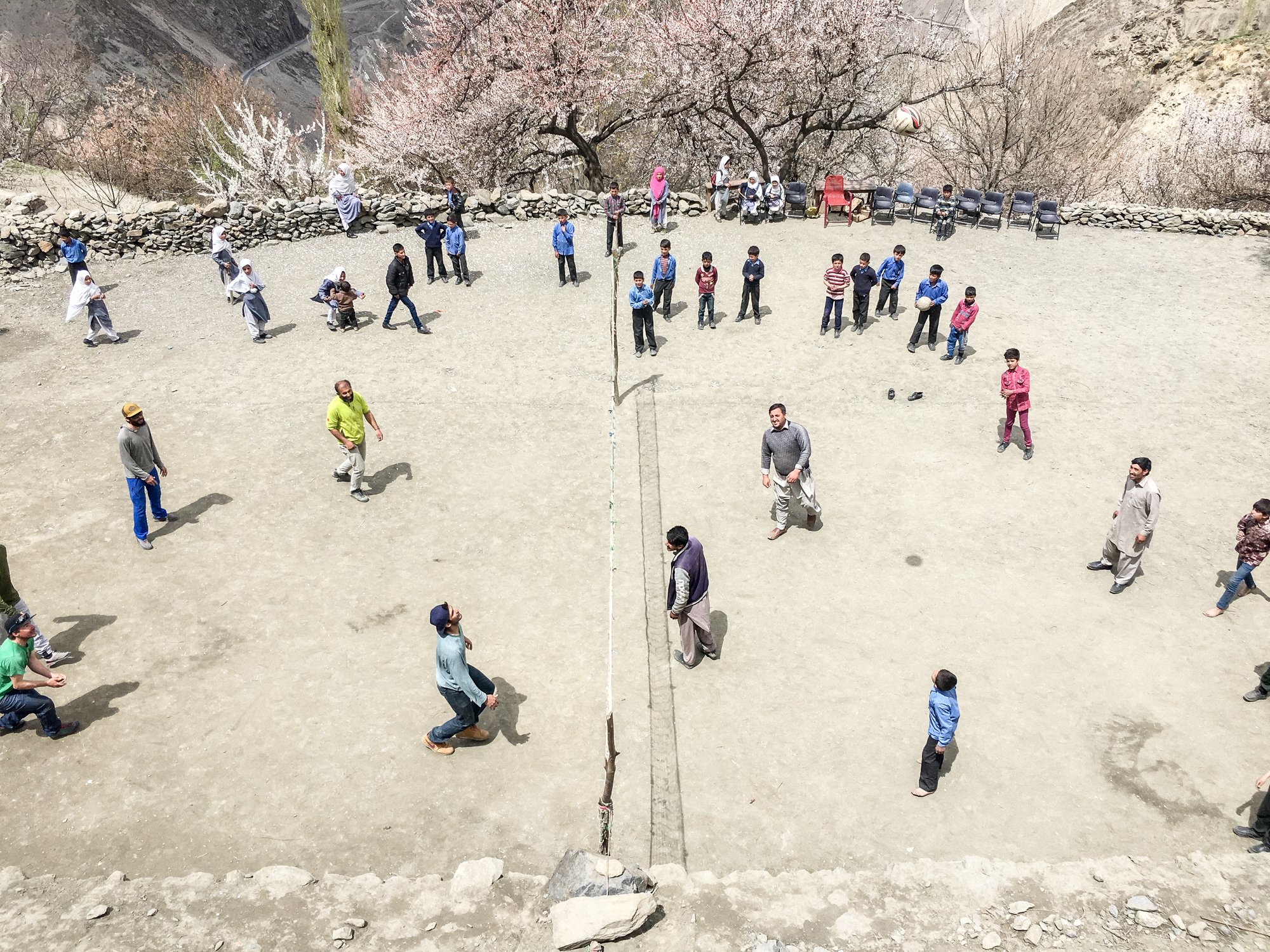
The following 20 hours on the KKH are probably the most painful of my life, feeling pain in my ribs in every turn and pain in my bum in every bump, suffering every time I need to change position.
Thanks to the driver who made a nonstop trip, we arrive early morning in Islambad. A doctor from insurance calls me to ask about my health, I am not too alarmist! Shamyl who is helping with insurance as well for our repatriation is optimistic and thinks I should be able to fly back home that same evening. My father and my wife are working on their side at home to get paperwork done quickly.
Laurent has a sore and swollen knee after the fall and never manages to get on hold of our common insurance. Nobody will answer in following few hours. I can’ t reach them on my side either and emails don’t get a reply, hopes for a flight tonight are slowly vanishing. Finally, a few hours later they call Laurent back on Javed’ s phone and start organizing his repatriation. At the same time via email, the insurance asks me to make a medical imagery! What the fuck is an imagery? I ask them but no reply, try to call but no reply and finally after an hour of calling here and there in France I understand that they want a spine MRI. Luckily Hamza who accompanied us at the beginning of the trip is a doctor in the PAF (army) hospital and manages to get a rendezvous for the next morning. Adam found a place on plane straight away and he is leaving tonight. Spending the evening chilling at the hotel, pain is slowly coming back for a long night.
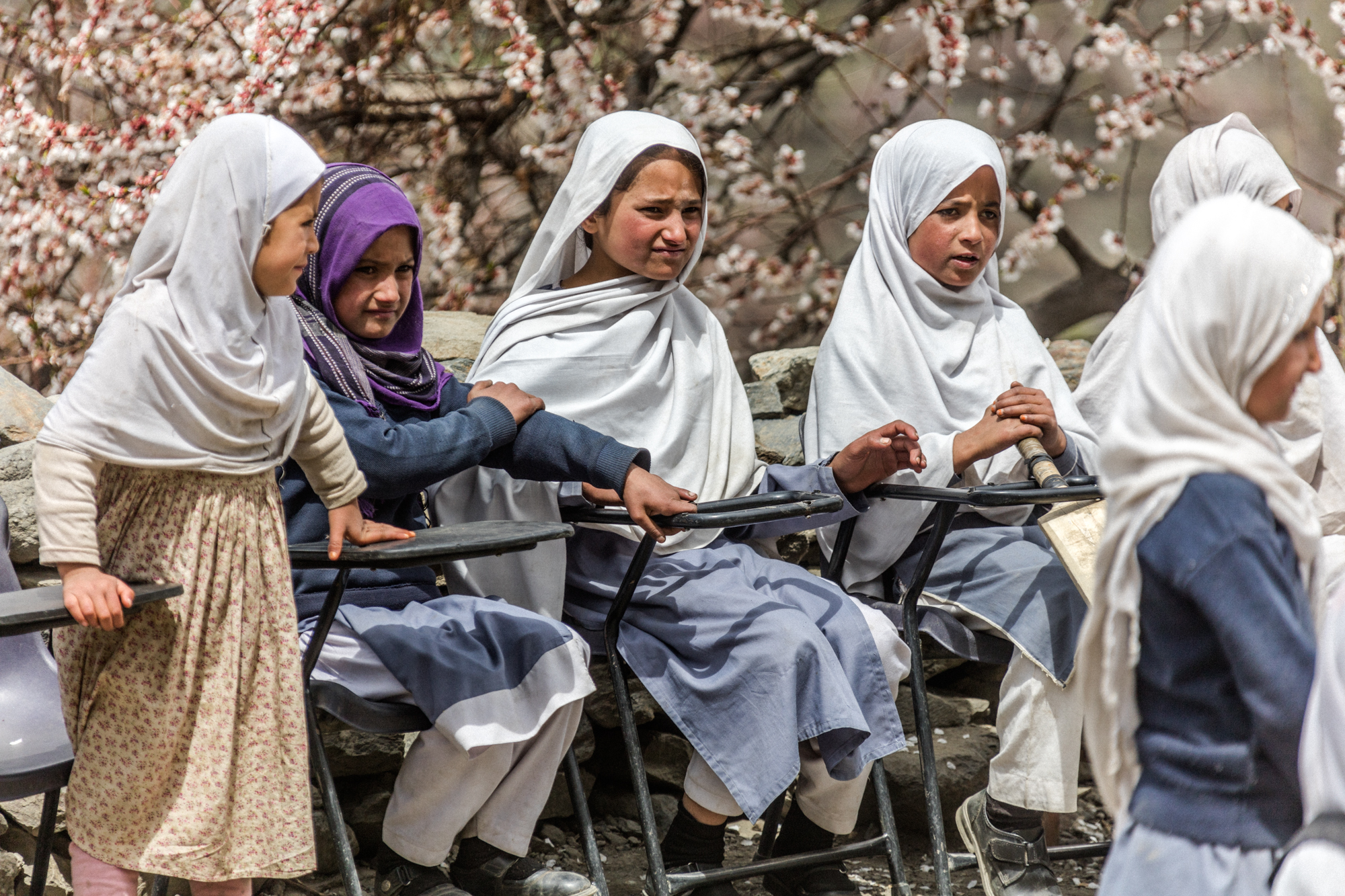 Next morning, Hamza’s brother Ali, is driving us to the hospital which looks clean and modern. It might be the first time that doctors have to do a full spine MRI and they are a bit anxious. After almost an hour in the machin, it slowly gets hotter and I feel like sweating in a toaster. The noise is becoming unbearable as I realise I almost have no hearing protection. Finally, a few minutes later, someone is opening the toaster and I can get some fresh air.
Next morning, Hamza’s brother Ali, is driving us to the hospital which looks clean and modern. It might be the first time that doctors have to do a full spine MRI and they are a bit anxious. After almost an hour in the machin, it slowly gets hotter and I feel like sweating in a toaster. The noise is becoming unbearable as I realise I almost have no hearing protection. Finally, a few minutes later, someone is opening the toaster and I can get some fresh air.
On the way back to the hotel, Ali drives us through the city to a park where someone finally brings a big plastic bag with… beers! Back on wifi at the hotel, I am starting to send a first part of the few hundred images from MRI via wetransfer to the insurance. They quickly reply to me that for safety reasons they can ‘t download that kind of transfer. After an hour of sending images email per email, I get another message asking for the detailed complete images of the MRI. I call hamza straight away and he tells me that it normally takes 3 days to get it done but inshallah it will be written tomorrow in the morning. Starting to lose my patience, I finally get on phone with someone at the insurance. That person doesn’t understand anything to my situation and treats me as I just had a little breakdown with my car at home. My interlocutor even becomes unpleasant, so I decide to quickly end the discussion. Then my wife Jessica tells me she had the same problem with these interlocutors quickly becoming unpleasant on phone. I slowly understand that I won’t have any help from the insurance, I just need to be a good sheep and provide the documents they ask for.
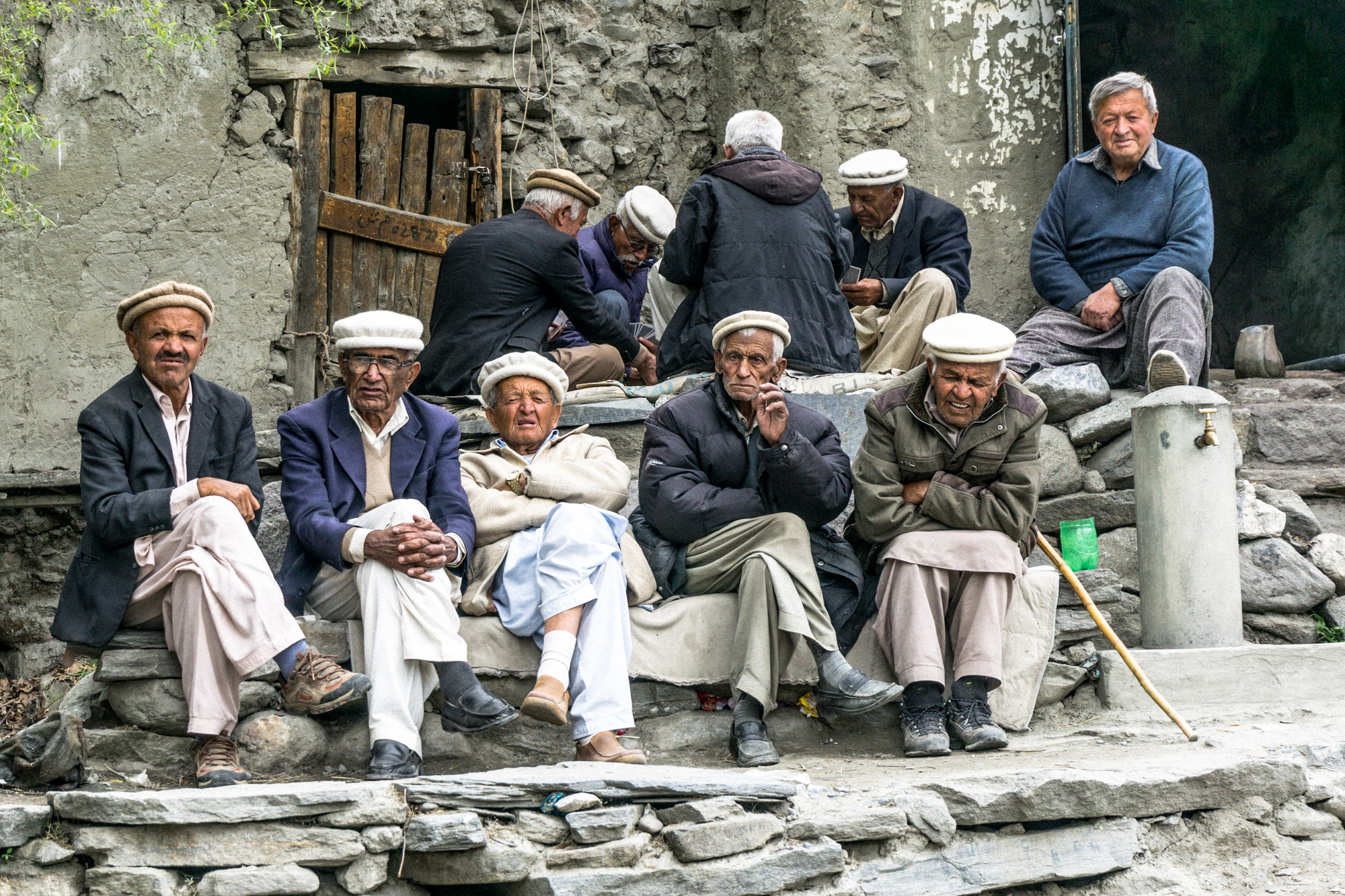
At least during those waiting days, we can drive through the city with Ali and discover a bit better Islamabad. We also get to meet people from ski federation, from army, and a few motivated local riders. Javed is still with us being our private nurse and in our messy rooms we manage to kill the time in between TV, music, beer and local medicine.
Waking up too early again that Friday morning, I don’t feel well at all. The pain is strong despite medicines and I am slowly starting to mentally loose it. Being the day before the weekend, if I can’t get all paperwork done today it means I sign for a few more days in this situation. Still dark outside, I am writing messages to all contacts I think could help me get out of here. Writing emails to the insurance as well, sending them pictures of my sore back and clearly asking for help, I never get any reply. The sun is rising, and I start feeling better for a few hours again. It is almost a routine now: breakfast at the hotel, a ride to the hospital with Ali and a long wait there.
Finally, Hamza arrives with the diagnostic, one vertebra (L4) is seriously compacted. Hopefully it should allow me to fly back. But the greedy insurance always wants more paperwork, a “fit to fly” document, a picture with a corset for travelling and a letter from the local doctor to allow me to fly back with this injury. The insurance also wants to put all responsibilities on pakistani doctors, I am disgusted. Time is running out before the weekend but at the last moment I get a call from somebody working with the insurance who is on its way to our hotel to book flight tickets.
After 3 long days waiting, now the insurance wants me on the first flight back, obliging me to run around to get my bags ready. Arthur who was supposed to come with me to help with luggage is suddenly out of the list, the insurance only allows medical personal to accompany me for free on the plane. Laurent will fly the next day with insurance as well.
A few hours later I am at the airport, saying goodbye to Javed and seating in a wheel chair for the first time since my accident. Soon after I am seating in 1st class with a glass of champaign, the flight back will be less painful than driving on KKH for sure. In Geneva I have to carry my 20kg ski bag by myself to get through customs and an ambulance is waiting for me on the other side and brings me back home, almost a week after the accident.
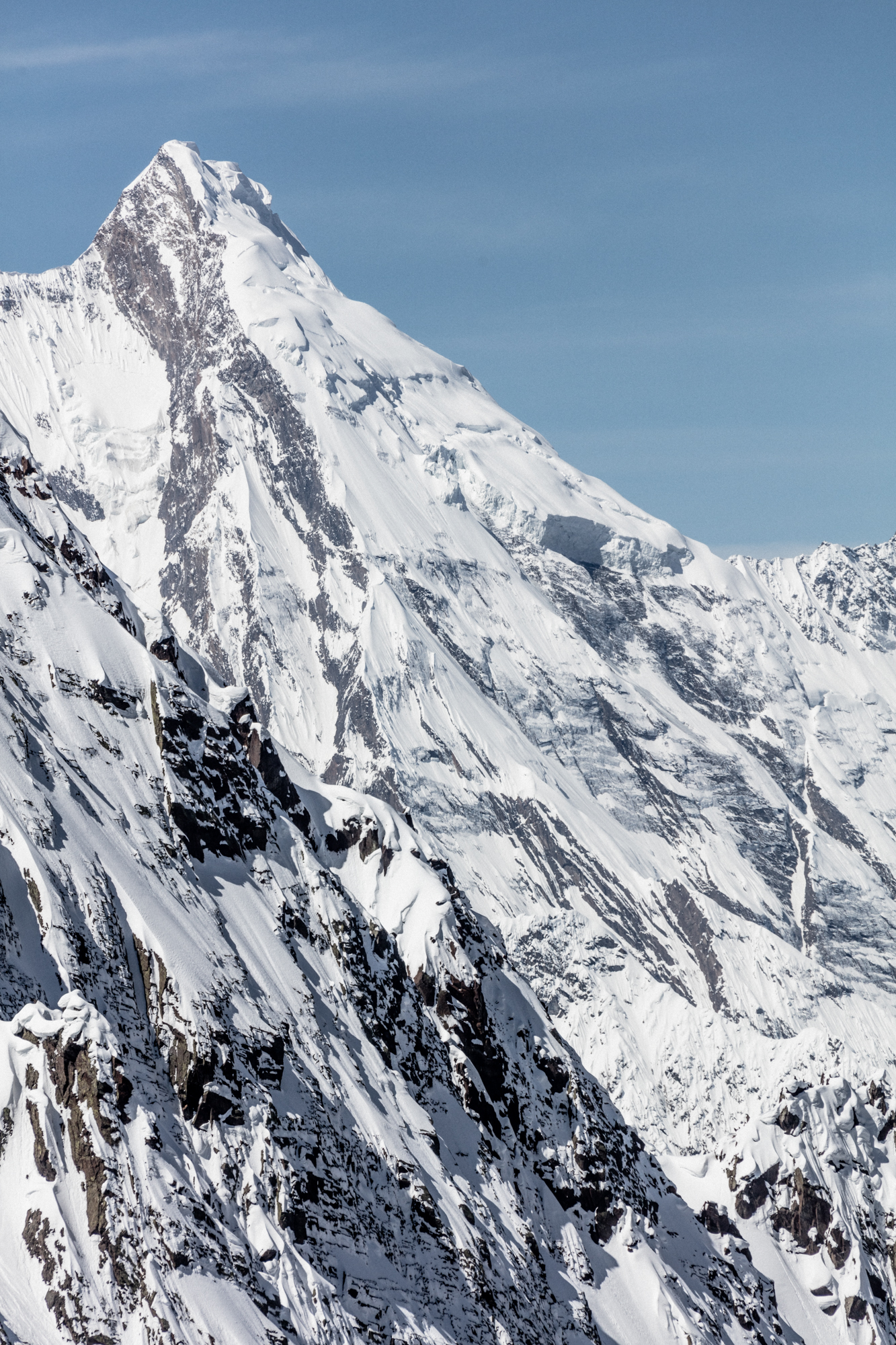
Two days later I go for a checkup at the hospital, the doctor can already see 4 broken ribs on the pakistani scan from Gilgit. The new scan reveals 3 more broken ribs! I understand now why it was so painful. Instead of wearing a corset to heal the broken vertebra, I meet a surgeon specialized in cementing vertebras. Two days later I find myself in the surgery department for a “Spine Jack operation”.
Slowly recovering at home the following days, I still feel a strong pain at the bottom of my spine so I ask the doctor to have another look to the scans. He calls me back to say my sacrum is broken as well, which ends my summer guiding season before it even starts.
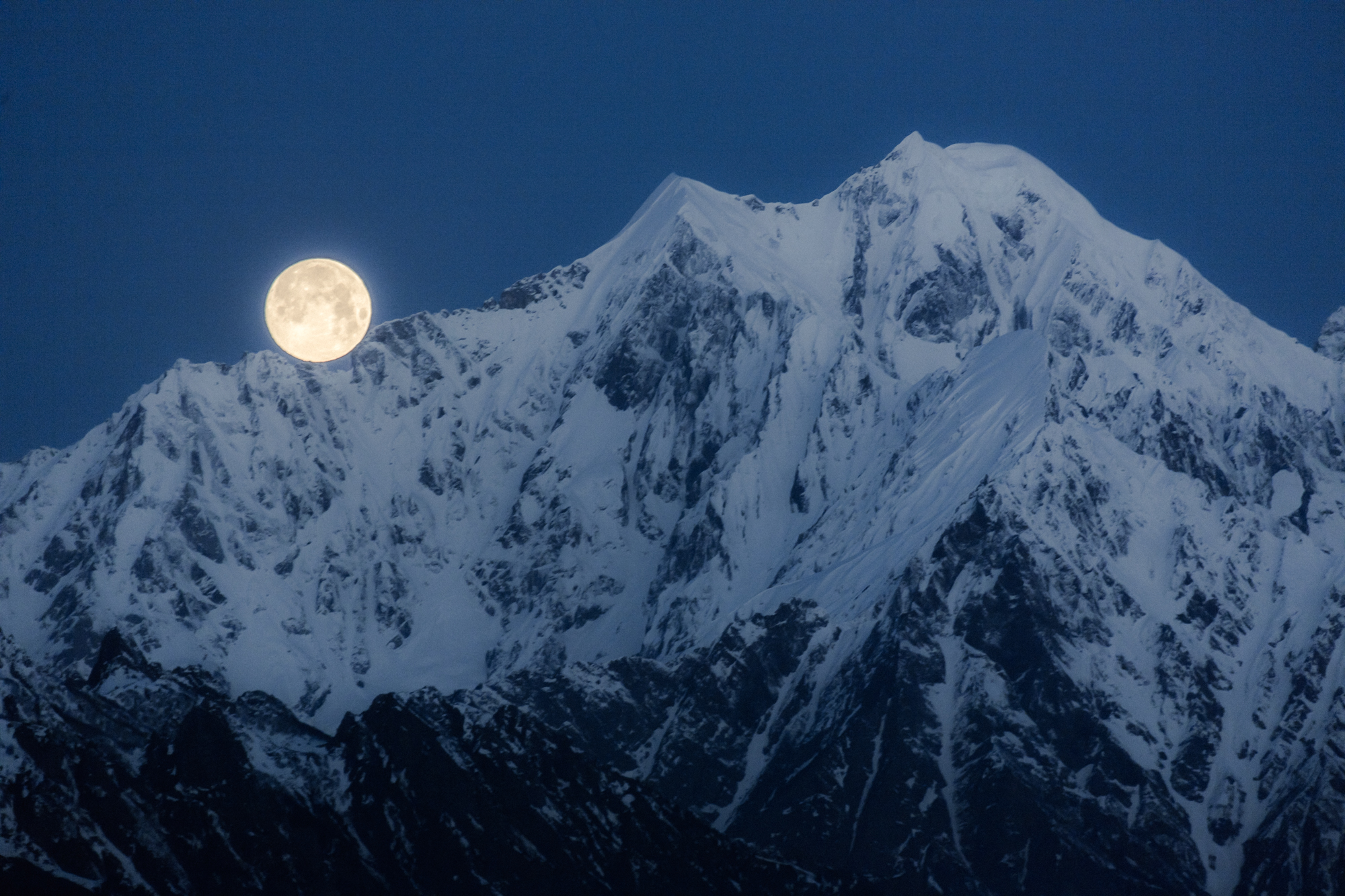
After a dozen expeditions without taking a special travelling/mountaineering insurance, it was the first time I subscribed to this kind of insurance, and it was even supposed to be the best one available in France. Expecting I wouldn’t have to do anything to get repatriated if I had a problem in Pakistan, I realized that reality is totally different. I felt like the insurance was my enemy more than my ally and that I was lucky to have already quite a few contacts in Pakistan to help me. I understood that when you travel to a remote country, you might better find the right contacts before departure more than just relying on your insurance. Still the real interest of an insurance is in term of money, you will normally always get repaid for the repatriation expenses which can be expensive in some situations.
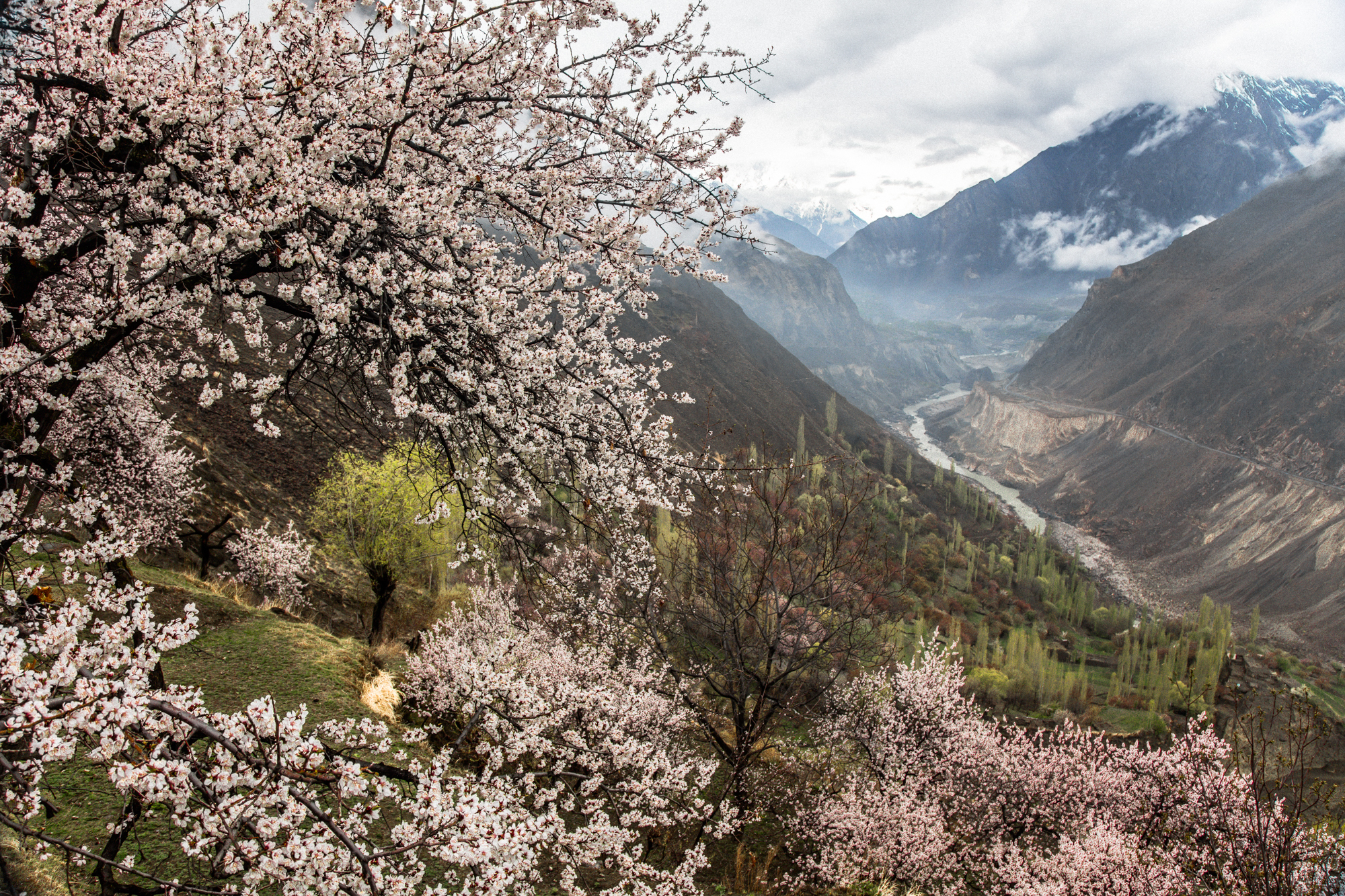
Finally, this experience connected me at a deeper level with my Pakistani friends and I would like to help them in return somehow, already planning to return with more altruistic objectives. A special thanks to Jawed, Hamza and Shamyl, and to my wife, family and friends as well for their help.

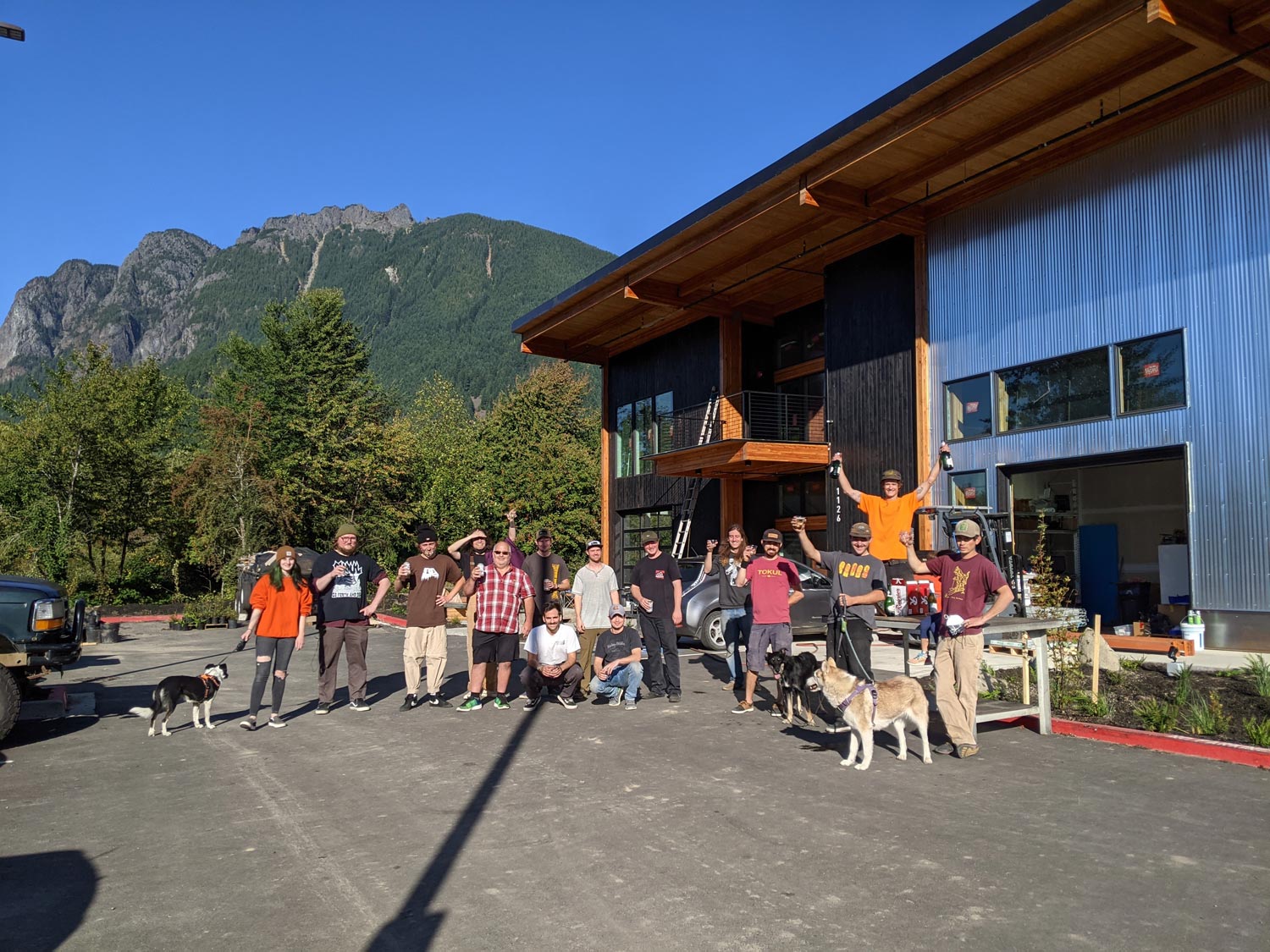
Awesome infroamtion all pictures are so beautiful we also know best